NO LETTING UP
Contrary to popular belief, Russ isn't the antagonist that people think he is.
It's easy to see how this misconception became so widespread, though. Here's a list of euphemisms that I have personally used to describe him in the five years since I first reviewed his major-label debut, There's Really A Wolf: abrasive, brusque, controversial, emphatic, and outspoken. To his credit, he doesn't deny any of those descriptors. In fact, his reaction is more amused than anything else when he hears this list.
"I take full accountability and responsibility for anything I've said and anything that's come from it," Russ says during a lengthy Zoom interview. "And I stand on everything I've ever said. That's why I haven't apologized for it, because I meant it at the time. Could my approach have been softer and more polished? Yeah. But I don't have media training. I don't have mentors who are industry vets or whatever telling me how to talk. This is just raw and uncut."
PHOTOGRAPHY BY:
MADDIE IVEY
EDITION 12
APRIL 2022
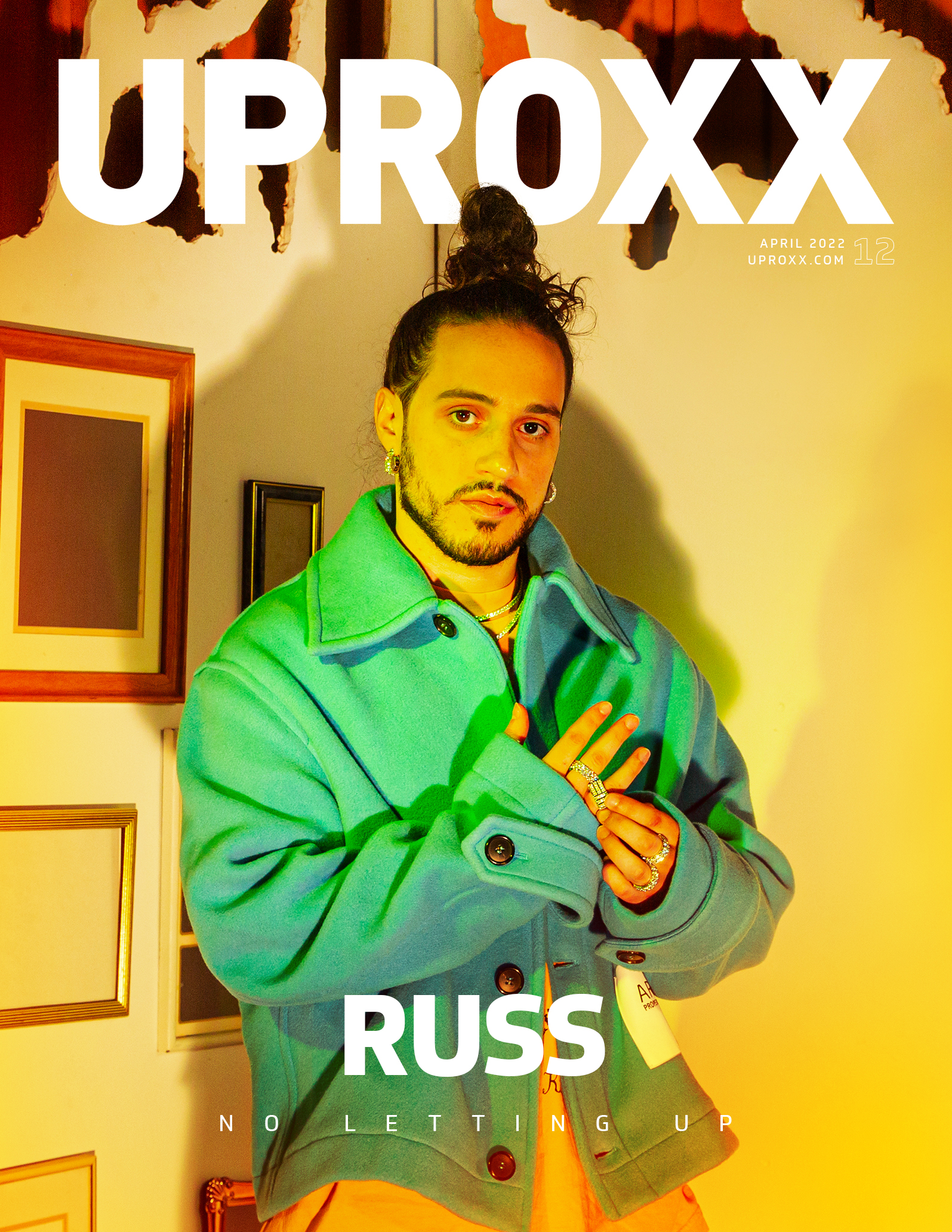
APRIL 5, 2022
BY: AARON WILLIAMS
Over the past several years, the New Jersey-born, Atlanta-based rapper has drawn the above descriptors from both critics and fans alike. This is mostly thanks to his unfiltered, no-holds-barred attitude toward sharing his opinions during interviews. Russ has proven to have vocal takes on everything from modern rap’s fascination with pill-popping to the virtues of remaining independent in a music industry that has become more artist-friendly than ever.
It probably doesn't help that these missives are delivered with the same cavalier dismissiveness as his unapologetic explanation for them. To his credit, they come from a pure place: Russ' unabashed love for the art and culture of hip-hop. And recently, he's begun to mellow out a lot. Narratives take a long time to change in entertainment, something Russ knows very well. He isn't holding his breath for a reevaluation coming any time soon.
Today, though, he's with his family, enjoying the unseasonal sunshine by his pool and "eating Chick-fil-A." As he reveals over the course of an hour-long conversation, this is his usual state of being and where he's most comfortable. Even though he's blowing up in the wake of well-received releases like Zoo, Shake The Snow Globe, the Chomp EP, and his recently released full-length follow-up, Chomp 2, he's actually as humble as can be, surrounding himself with family and friends rather than industry hangers-on and sycophants. This is how he stays grounded and staying grounded is the main thing to which he credits his success.
Now, with a decade-long string of independently released projects behind him and a slew of promising future opportunities ahead, Russ is willing to pause for a moment. He’s able to take stock of his career, his popularity, and turning 30, all while reevaluating his own relationship to the success that has come on his own terms.
"I'm reading this book right now called The Mountain Is You," he says. "It talks about adjustment shock, and I was like, 'Oh my God, this is so me.' I can't even believe that this explains everything. And basically, when you have a major change in your life, especially a positive one, there's an adjustment shock. And that's increased anxiety, increased irritability, and you're trying to make sure you don't blow all your money or lose your career. So, it's from this place of like, 'Oh my God, I don't want to lose anything.'"
"And after reading this book, I realized that's really where I've been at for five years," he continues. "Everything is new. I'm now, for the past however long now, paying for my whole family and taking care of my whole family's bills, everything. I have this career, I have all these opportunities, and so the shock of the change causes distress. And it's a new level that I have to finally get familiar with. To take off my coat and settle into. I'm doing much better at it now."
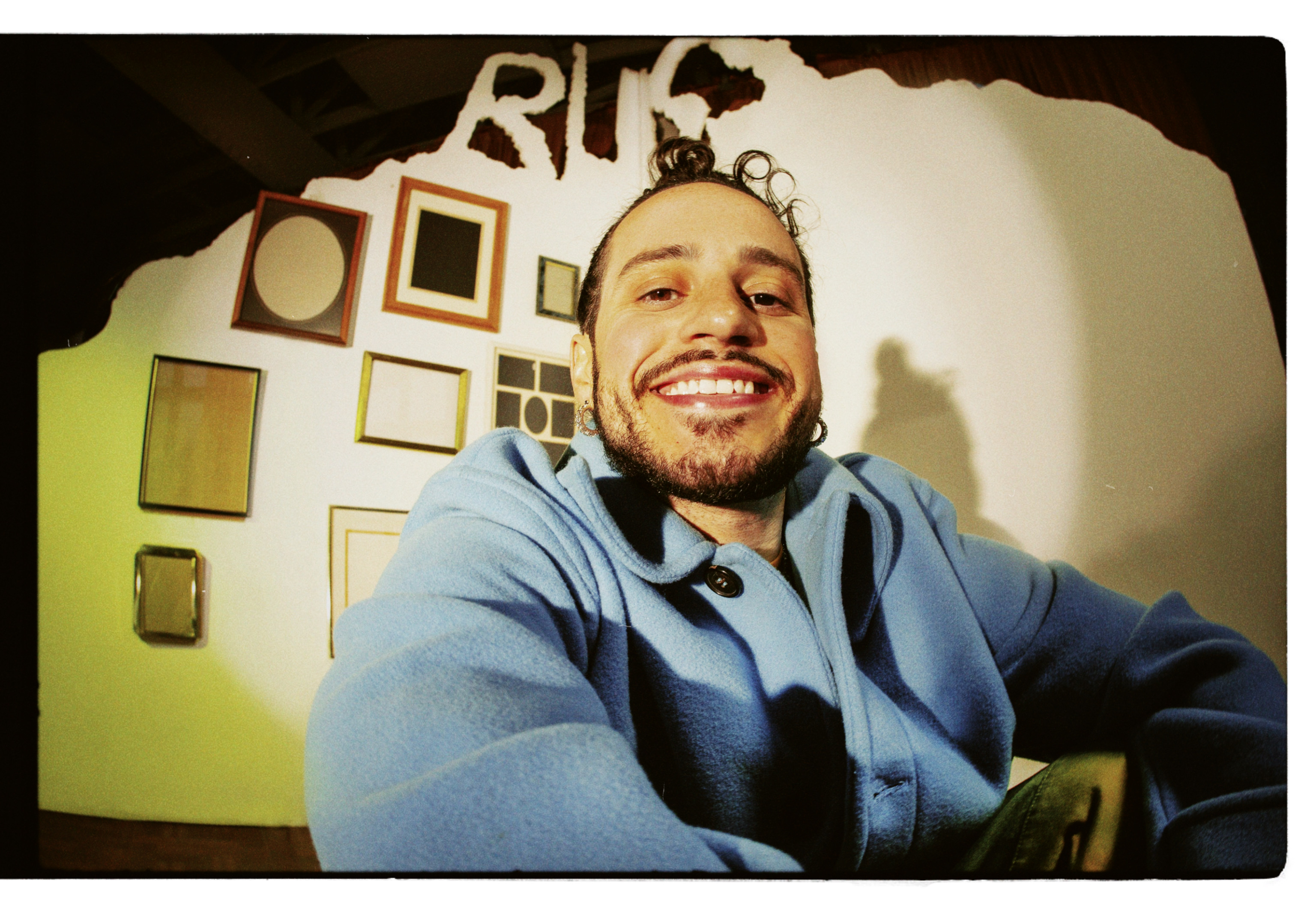
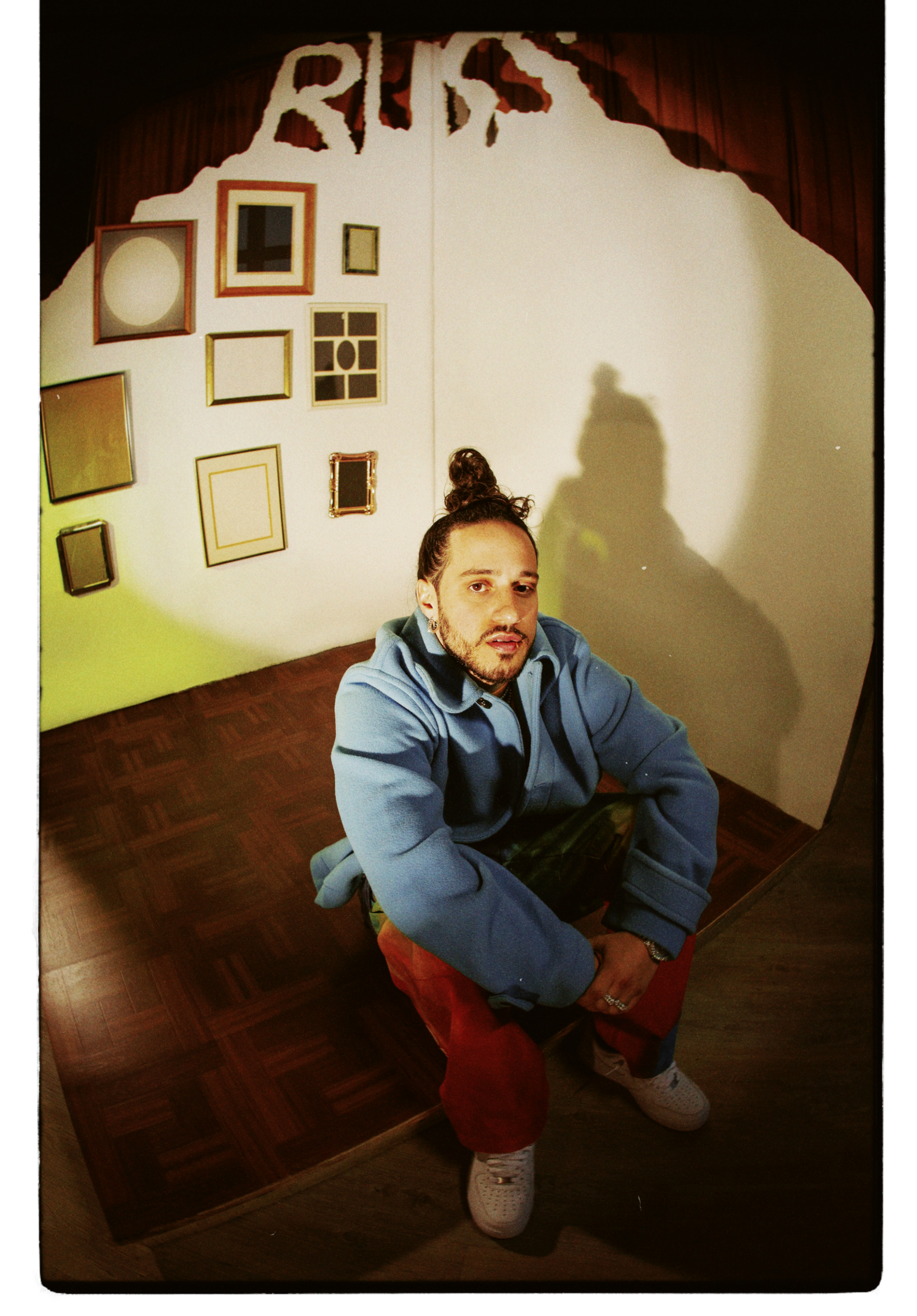
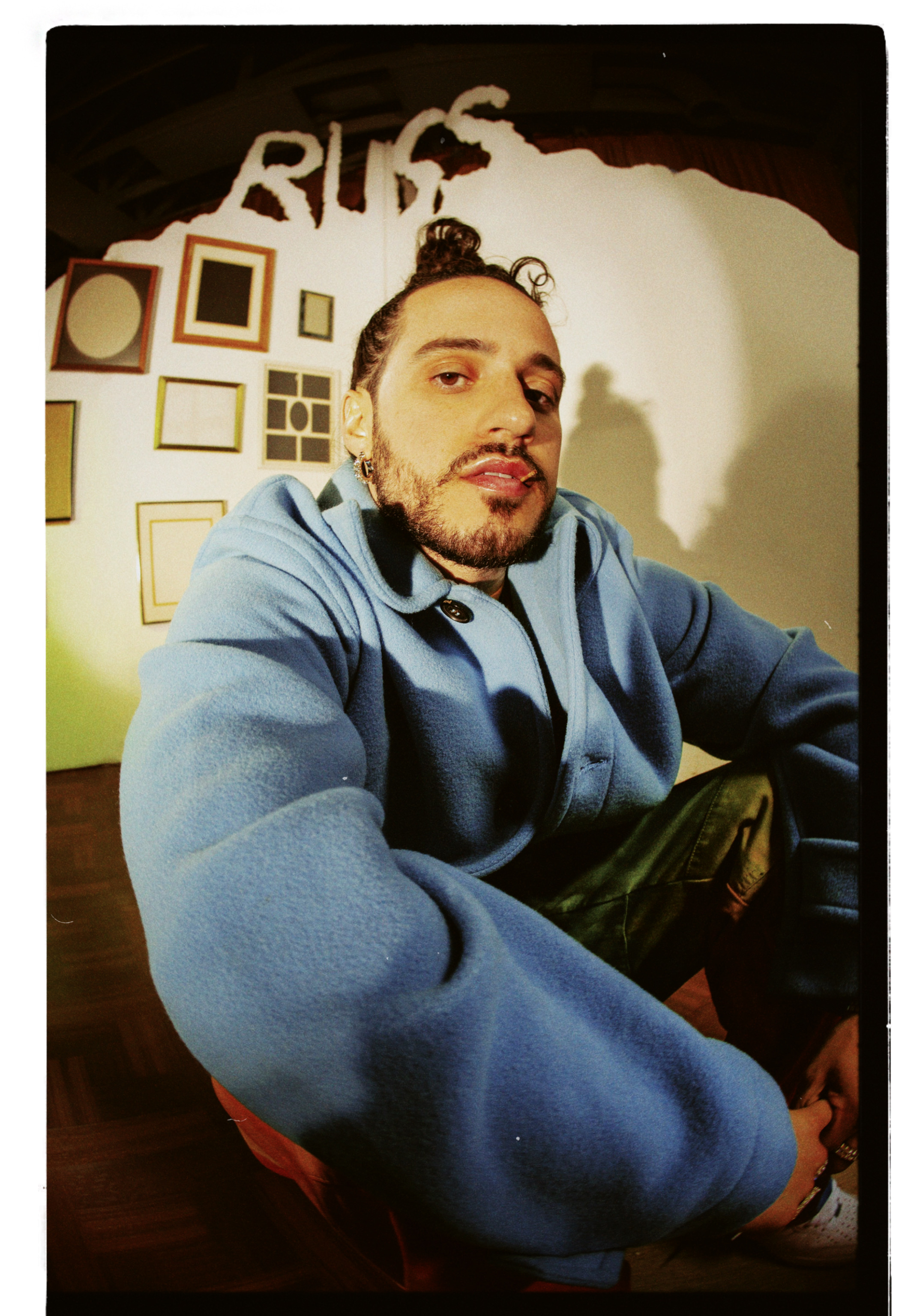
RUSS
"Could my approach have been softer and more polished?
Yeah."
"It's always when you look back, you notice that the timing of everything was actually perfect."
Russ – born Russell James Vitale in Secaucus, New Jersey in September 1992 – grew up as an avid fan of hip-hop, inspired by his love of records from Eminem, 50 Cent, and Lloyd Banks. In fact, it was Eminem’s 2000 MTV VMAs performance of “The Real Slim Shady,” which was inspired by the song’s video and saw the rapper surrounded by doppelgangers, that proved the first time Russ recalls having his mind blown by the genre. The impact of Eminem’s complex wordplay still resonates in Russ’ music to this day, as he layers his modern releases with intricate double entendres.
“I wrote the book on independence, I’m on my third presidential,” he barks on his most recent release to date, “What Are Y’all.” It’s not just an excellent example of his gift for lyrical wizardry – the reference to copping Rolexes from the proceeds of his self-funded rap career also slyly name-checks the author of The Declaration Of Independence, Thomas Jefferson. It’s also a concise summation of his philosophy of self-determination even in the face of resistance from fans, labels, and the rap game itself.
Russ started his professional rap career at the age of 19 in 2011, after co-founding the imprint DIEMON with his friend Bugus at 17 and releasing a mind-boggling number of mixtapes independently. Three years and eleven tapes later, Russ began gaining traction when he started releasing a single a week on SoundCloud – a practice he’s continued in some fashion to this day. He’s staunchly, stubbornly stuck to his principles ever since, even through a stint on Columbia Records, where he released three albums in four years.
It’s safe to say that this approach – and Russ’ pride in expounding on it nearly every chance he gets – is a large cause of the friction he’s met when it comes to his perception from fans and media personalities. In 2017, shortly after the release of his major debut album, There’s Really A Wolf, Russ caused a stir online when posted a photo of himself wearing a T-shirt reading “How much Xans and lean do you have to do before you realize you’re a fucking loser?”
It felt like a call out to the then-prominent wave of SoundCloud rappers such as Lil Peep, Lil Pump, and Fredo Santana, as well as their influential predecessors such as Future, Gucci Mane, and Lil Wayne. As warranted as his push-back against the prevalence of seemingly pro-drug messaging in hip-hop may have been – consider that since then, the culture has lost several outstanding artists due to drug overdoses, including Peep, Mac Miller, and Juice WRLD – Russ was criticized for the harsh tone of the counter-messaging and for lacking nuance in how he addressed the root causes of drug addiction.
"when you have a major change in your life, especially a positive one, there's an adjustment shock."
Likewise, whenever he criticizes the music industry for long-held practices that many consider predatory, it’s sometimes with the air of directors like Martin Scorsese tut-tutting fans and peers for buying so wholeheartedly into the Disney-backed Marvel machine. But if his tone rubs people the wrong way, his words come from a place of passion. He really believes in what he’s saying and refuses to sell himself or anyone else short. That’s why he called his first album There’s Really A Wolf, inspired by the fable of the boy who cried wolf.
“I was constantly telling people I was going to blow up,” he explains, “and it was never happening. It was like my success was the wolf. Then, I finally blew up and that's where the title came from. Like, oh, there's really a wolf.”
So, you’ll forgive him for having a bit of a chip on his shoulder. In his eyes, he’s earned it. The passion that carried him through that early stint of releasing self-produced album after self-produced album remains, validated further by pride in his bull-headed approach paying off.
“In hindsight, that was one of the smartest things I could have done,” he notes. “It's always when you look back, you notice that the timing of everything was actually perfect. Had I known the producers that I know now and the collaborators I know now, maybe my debut album would've had outside production and features and all this stuff. But, when I look back, it was the smartest move to do the debut album completely solo. It put my sound and my taste on display for the whole world to either say, ‘You know what, we fuck with this’ or ‘we don't.’ It created a whole fanbase that I'll be able to sustain forever because the fanbase was built off just me.”
Following Wolf with Zoo in 2018 and Shake The Snow Globe in 2020 allowed Russ to branch out and evolve his sound without detracting from his independent mindset. “I would say within a year of Zoo coming out, I was not that crazy about it,” he says of his second album. The record was made during the backlash against him for that anti-drug T-shirt, as well as some high-profile run-ins with SoundCloud rappers such as Smokepurpp that put him on many young fans’ shitlists. “I was in a negative headspace, but as the years have gone on, I love Zoo.“
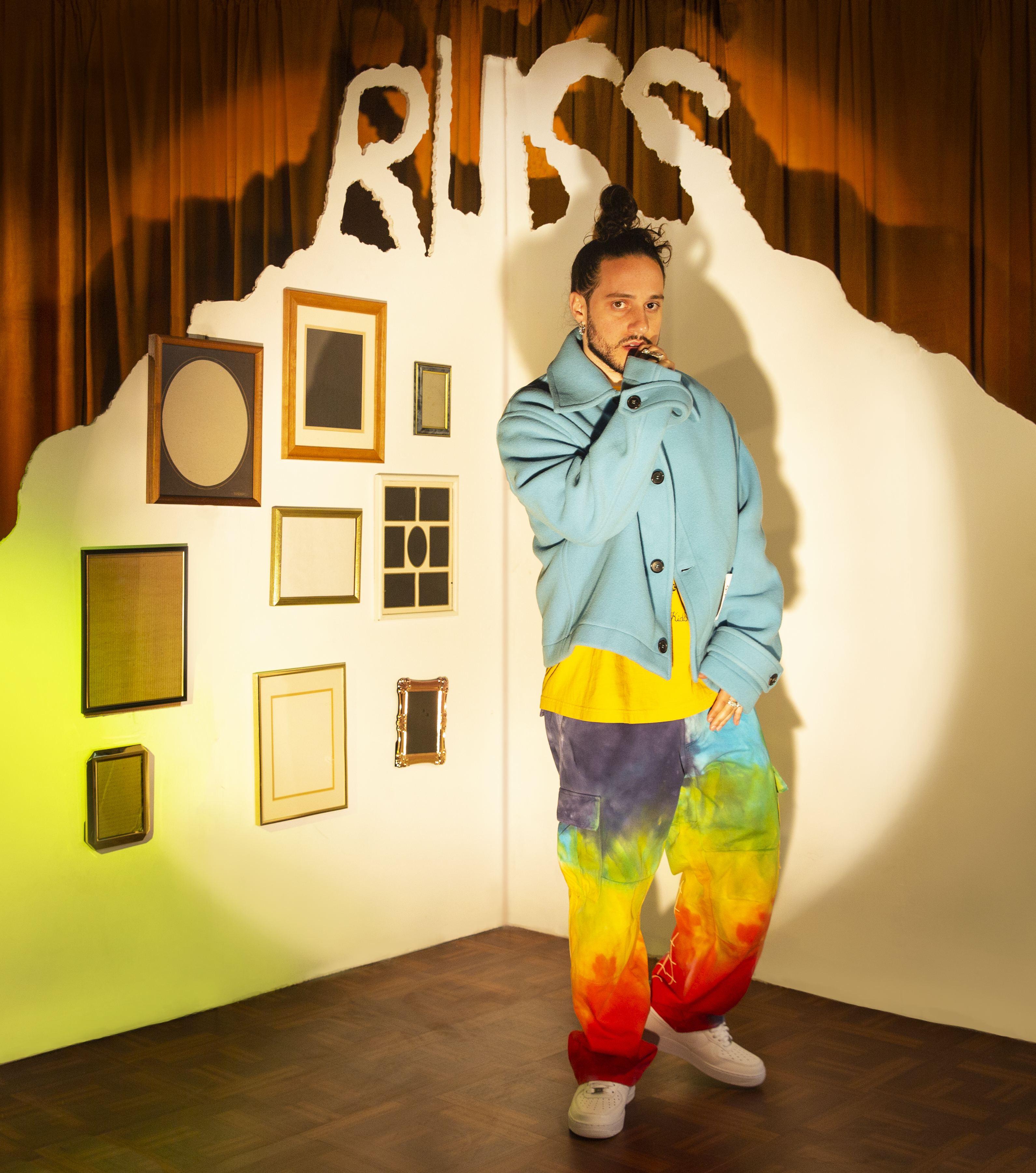
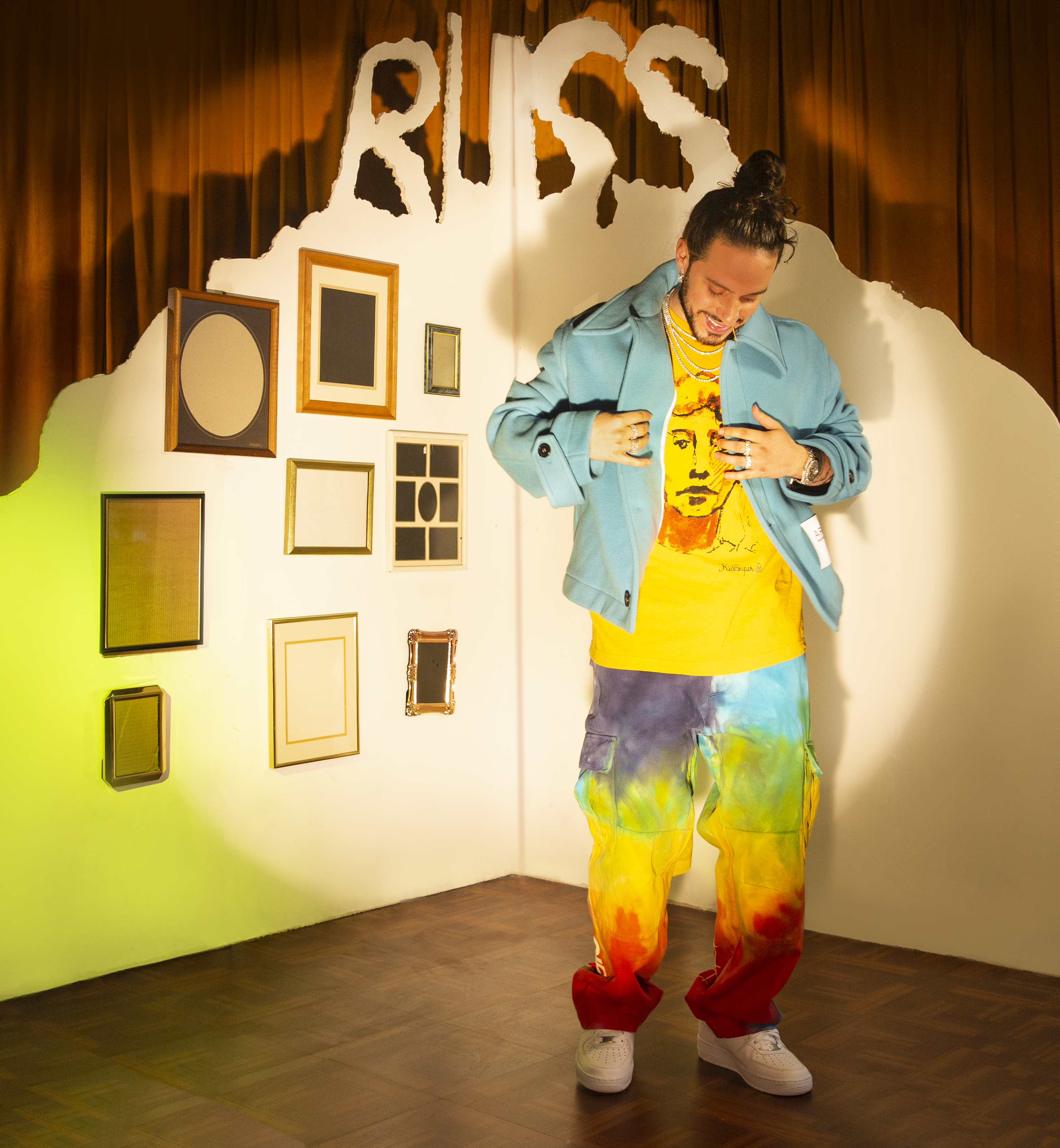
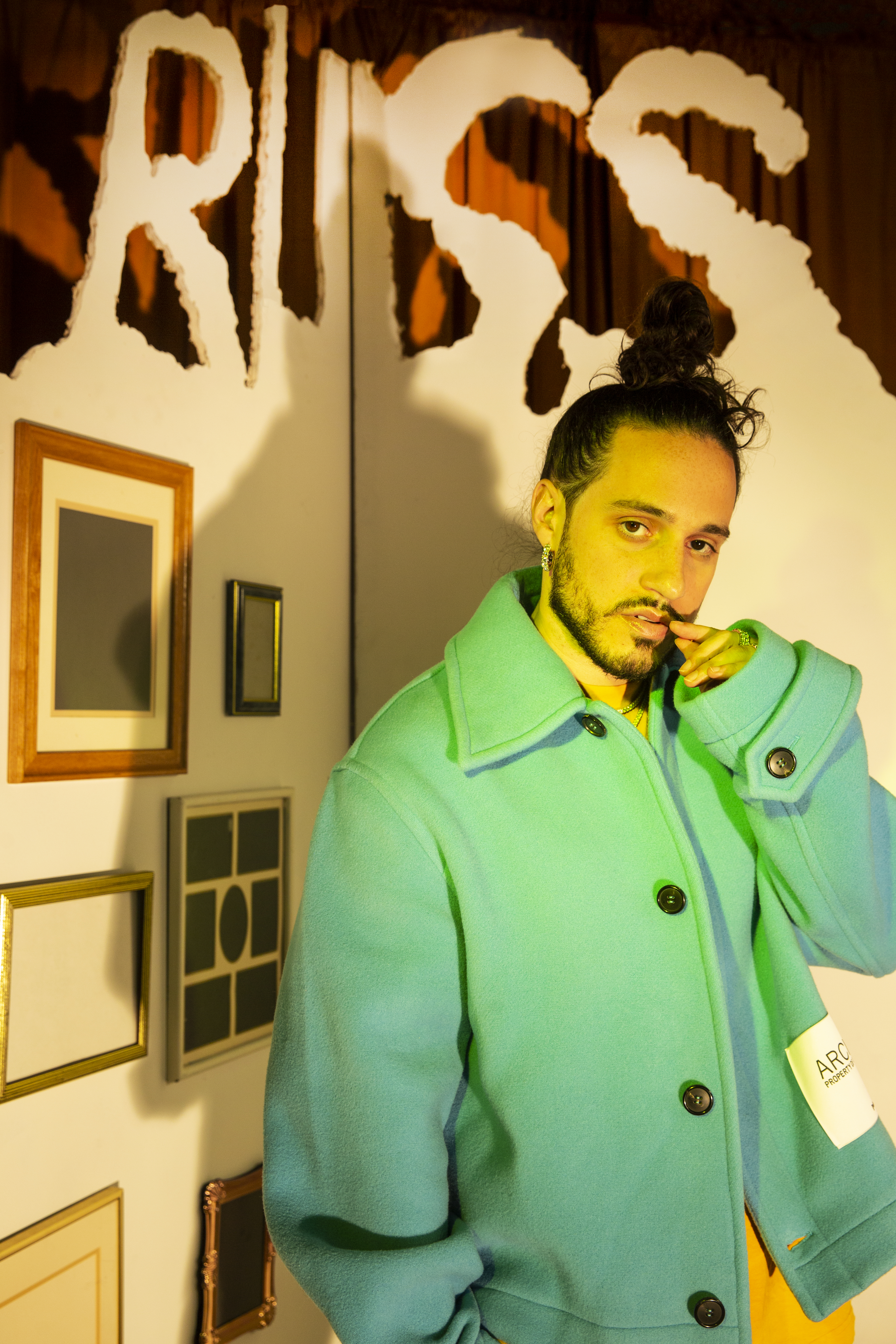
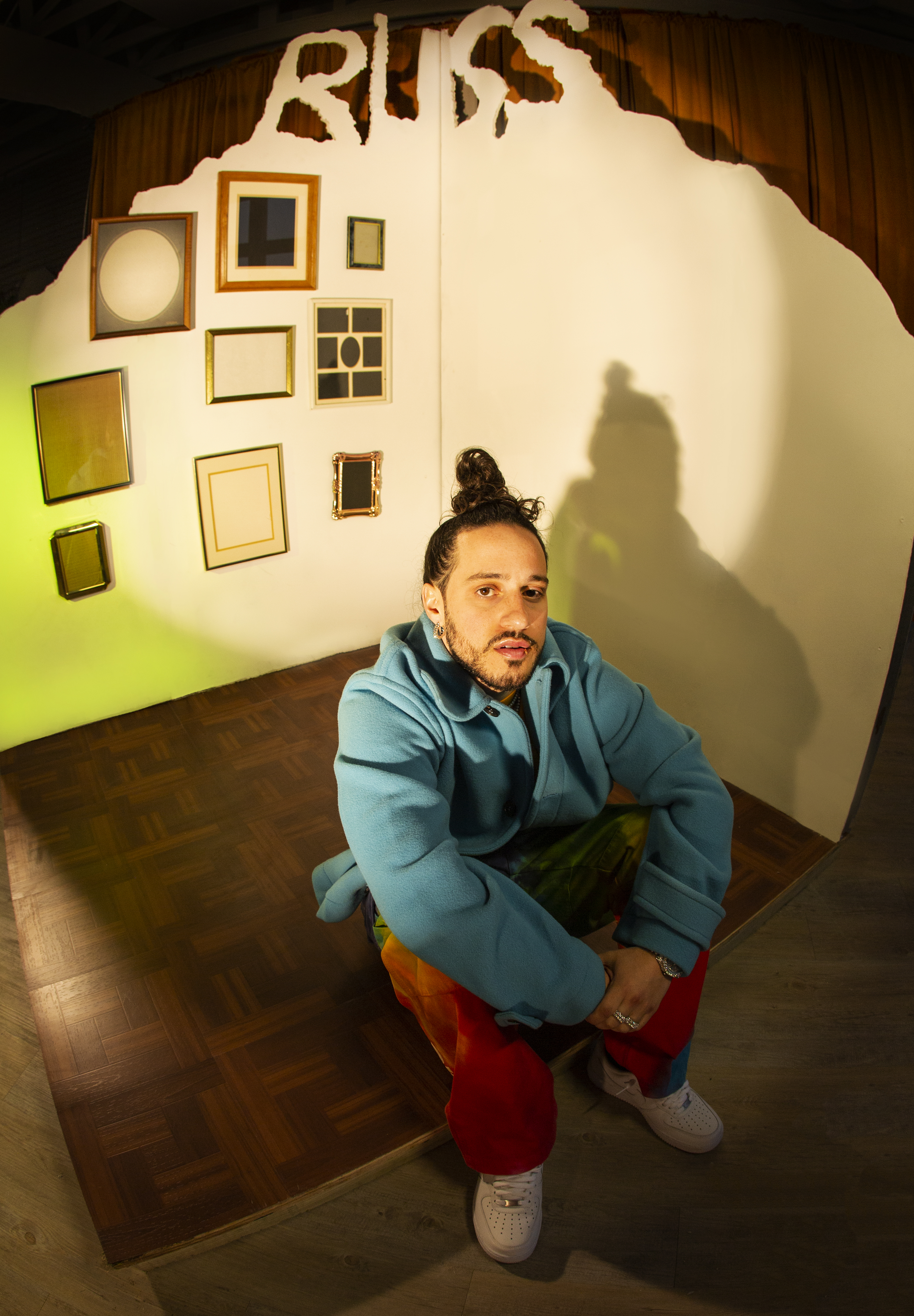
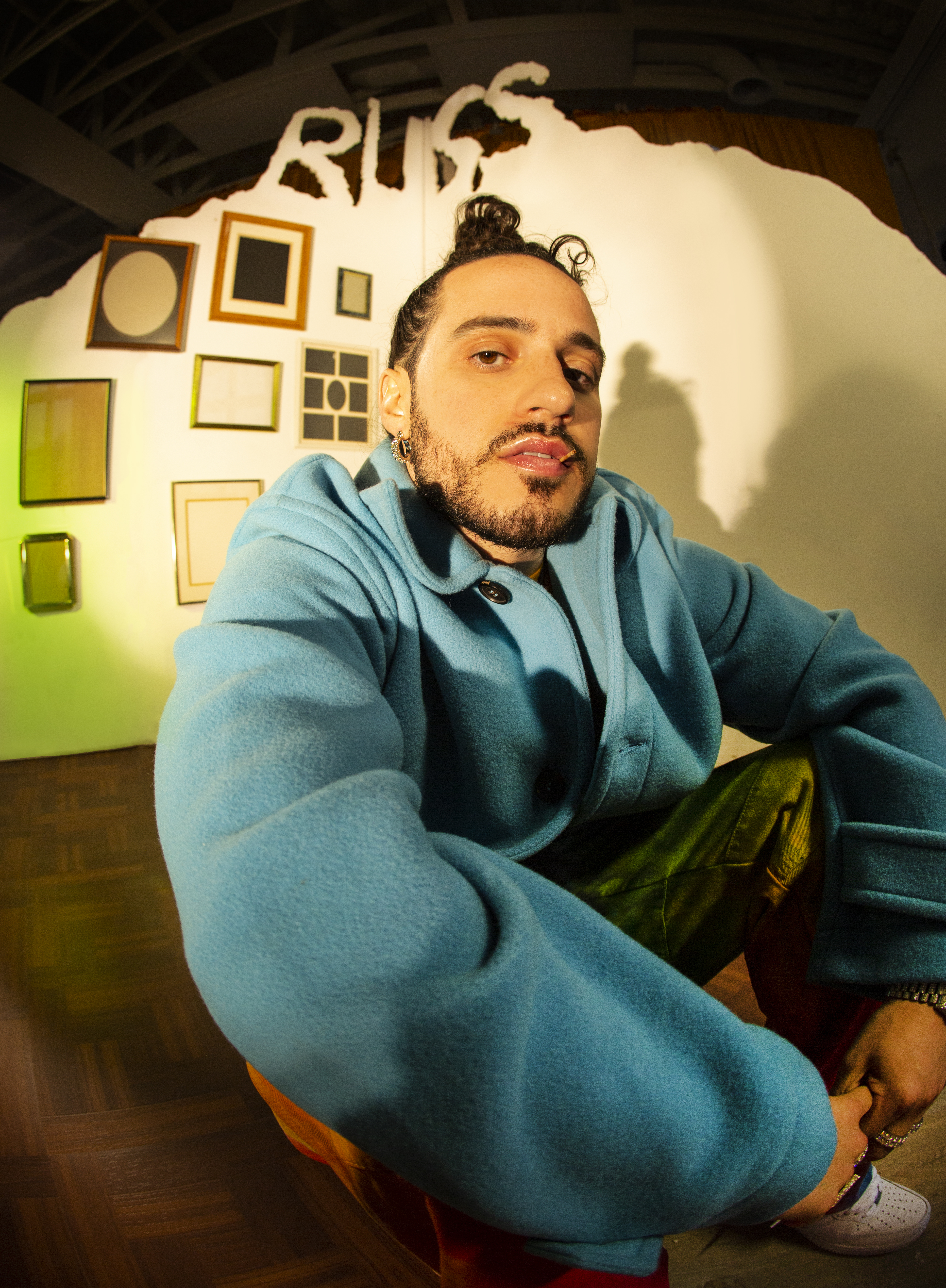
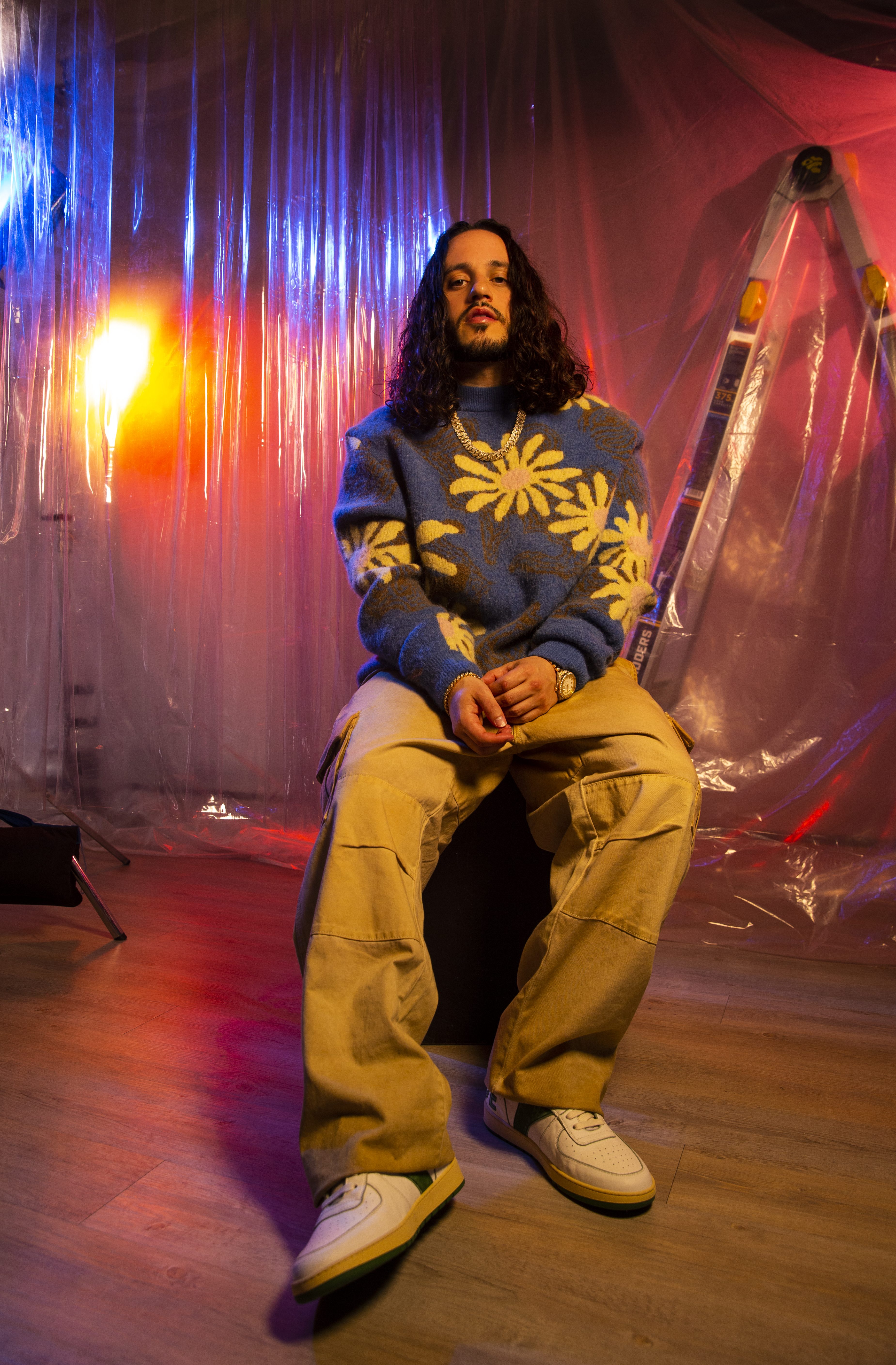
“On Zoo, I was like, let me make this more cohesive,” he says. “That's why it was a shorter album because I really wanted to craft an accurate sound and an accurate mood for how I was feeling at the time. When I go back and listen to Zoo, it's really well done as far as what I was trying to get across. It captures the chaos that was my life in 2018, with all the hate and all the incredible blessings at the same time. Selling out Staples Center, making the Forbes list. It's like you have this crazy juxtaposition of a lot of widespread negativity while also achieving a lot of incredible accomplishments. So, it was chaotic and there were dark moments and ‘fuck you’ moments. When you go back and listen to Zoo, it does a really good job at painting that picture.”
With 2020’s Shake The Snow Globe, Russ finally entered the coveted stratus of mainstream acceptance when Rihanna posted a video of herself dancing to his song, “Best On Earth,” on Instagram. Suddenly, it wasn’t just Russ’ hardcore fans and day-ones championing his cause. This is what so many artists work toward their entire careers and, in most cases, certain compromises must be made. Publishing must be signed away, radio singles must be written, and institutions like music publications and playlist programmers must be courted. Russ didn’t exactly flout those conventions, but he did show that they could be circumvented. Success doesn’t have to mean selling out.
“I love Shake The Snow Globe,” he says. “That was my most collaborative album yet, from the production to the features. It was the most critically acclaimed, but I feel like that's just because that was the most attention I had. I don't know how many critics were really checking for Zoo and There's Really A Wolf. I just feel like Shake The Snow Globe had more people tuned in. So, therefore, more people gave a fuck about it. It's hard to get people to come around to a brand-new sound when it's just me doing all this shit. It's easier to be, like, ‘this is a critically acclaimed album’ when you get the outside production and stuff on it. But at the end of the day, I do think Shake The Snow Globe is the most mature album I have made. It's a very self-aware album.”
With Shake The Snow Globe, Russ completed his deal with Columbia. Rather than rest on his laurels, he then set out to prove a new point. In achieving mainstream popularity, it was clear that the emphasis on collaboration with popular favorites like Kehlani and Ty Dolla $ign left him feeling like he’d blunted his focus on bars. To rectify this, he changed gears on Chomp, a five-song EP designed to prove that he could still spit with the best of them – literally. Assembling a who’s who of rap’s most elite lyricists including Black Thought, Busta Rhymes, and KXNG Crooked, Russ got back to basics, tearing through straightforward, raps-over-all tracks that reset the tone for his foray back to independence.
The eyebrow-raising EP was so successful at doing so that he followed it up with Chomp 2, a full-length version of the same concept. This time, the roster expanded to include such rhyme-ready A-listers as Big Sean, The Game, Jadakiss, Jay Electronica, Styles P, and Wale. It found Russ upping his game even more. And here’s the thing: That brash, borderline condescending attitude from his interviews? Hip-hop is built on a foundation of exactly that disdainful, demeaning character. Combined with the passion that Russ injects into everything he does, it makes the rhymes crackle with charisma. He’s convinced he’s got the best verse on every song on the project, too.
Russ isn’t blind to the criticisms, nor does he discount the circumstances of his success. He straight up volunteers his thoughts on being a white man in hip-hop, taking care to point out his advice and observations come from a place of love for the art and its originators.
“I do understand, though, that when you come into the game, especially when you come into the Black space as a white person with opinions that no one asks for, it's not going to be met very well,” he admits. “At the end of the day, I never said anything that was destructive towards the culture. Everything I said was an attempt to move it forward on a positive level. If I'm talking about ownership or if I'm talking about touring or... It's like everything I would say was always like, ‘oh, this would actually help everyone.’ It's not like I was pushing something negative. I wasn't moving around out here with a negative agenda. My agenda was positive. It was just that my approach was very like, ‘y'all got to fucking listen to what I'm saying, what the fuck is wrong with y'all.’ Obviously, that's not going to come across great, but I don't regret any of that at all, because I was 23, 24. If I didn't do that, I wouldn't be the person who I am now.”
If he attributes this newfound awareness to anything, it’s that he’s on the cusp of turning 30 and has been going to therapy. He says that, given the opportunity, he would tell 2017 Russ to “breathe and take a step back every once in a while.” But he makes it clear that he doesn’t regret anything he’s said over the past five years because of that earlier stated awareness.
"I never said anything that was destructive towards the culture. Everything I said was an attempt to move it forward on a positive level."
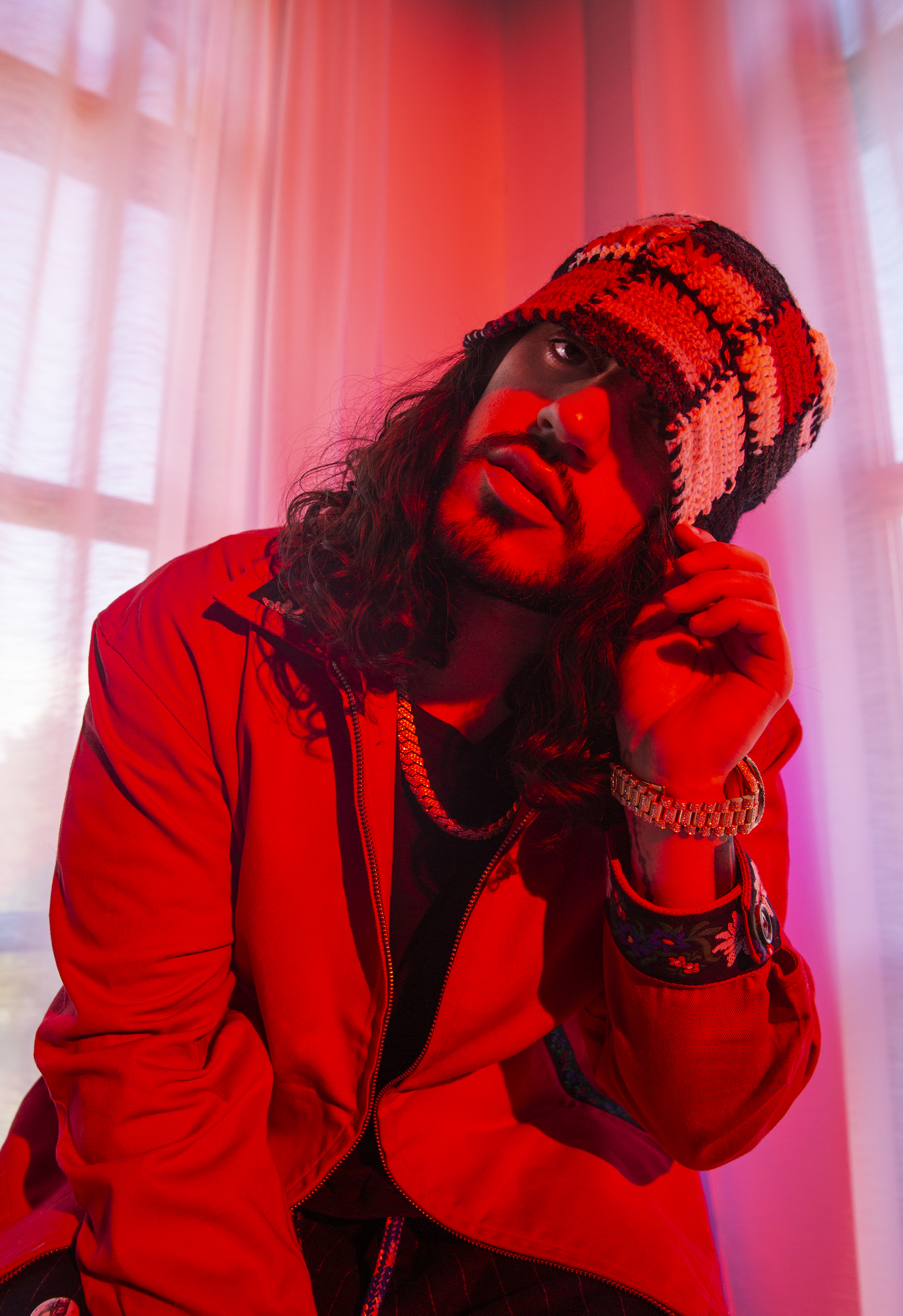
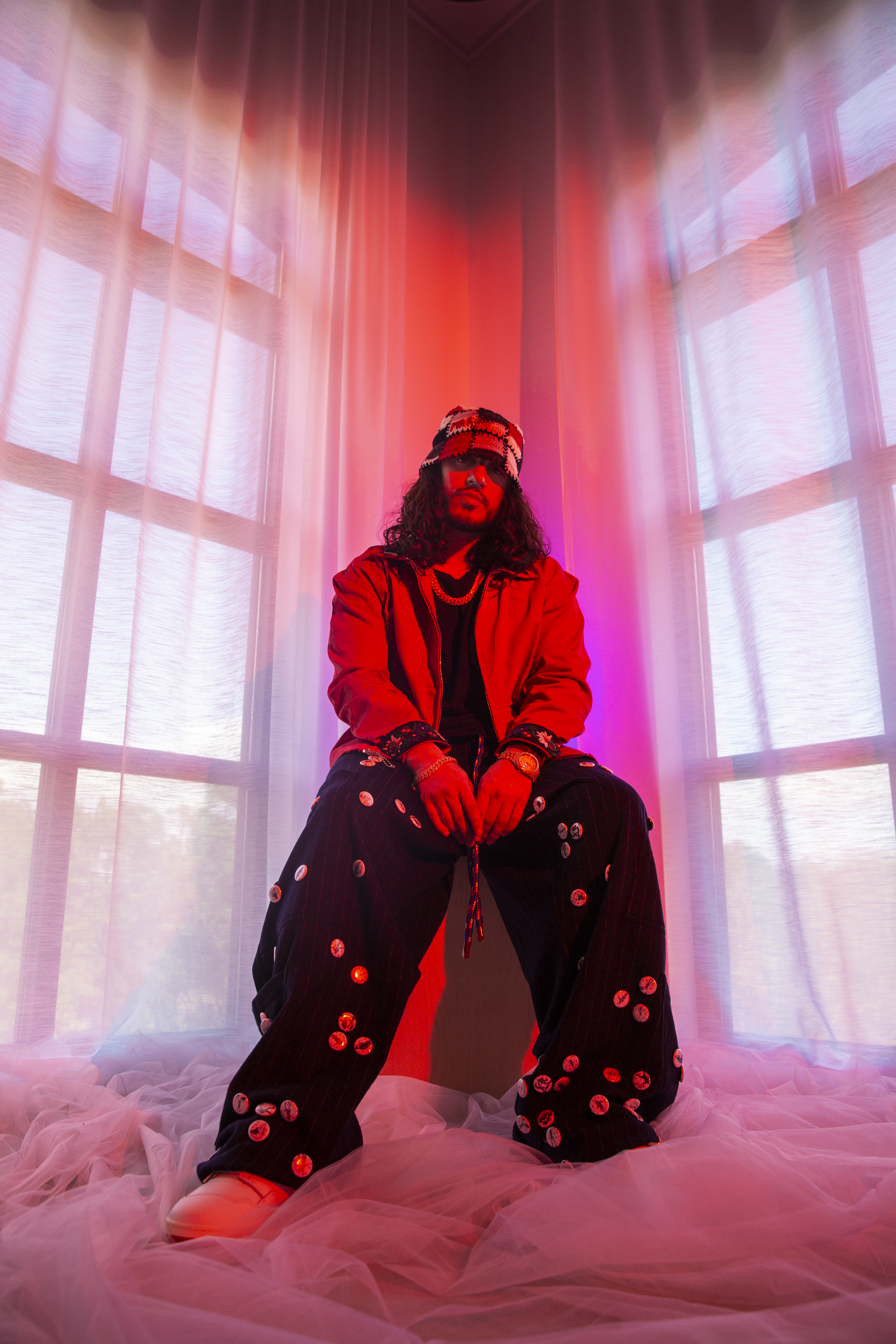
“I always said that the alternative to me not saying anything and not trying to help would've been a white person who came into this Black space and just made a bunch of money off Black culture and didn't even try to contribute anything back into it,” he continues. “If I just came in and I was quiet and made my money off Black culture and never even tried to like help people within it with advice or whatever, even if the advice was unsolicited, to me, that's the wrong move. That to me is fucked up. I know I could have also given advice and just done it in a more productive approach, in a softer approach that would actually have made people receive it better... sue me. No one's fucking perfect. Get over it.”
Of course, the best way to demonstrate his commitment to hip-hop culture is to put his money where his mouth is. That’s what he intends to do as he launches his label, DIEMON, in earnest. “It's just that time to really roll out the label officially,” he says of the endeavor. They’ve signed one artist so far, and they’re applying their long-held principles to the project. “We just always felt like we had the best ear and we were the best A&R's,” he boasts. “We were always calling people super early like, ‘Yo, watch. This person's going to blow up.’ Sure enough, they did. So, now we can just stamp it for real and really help artists. That's what I'm most excited about with the label. I’m in the position to help artists that I believe in.”
He’ll keep releasing his own music, too. He’s already back to dropping weekly offerings, including one recently with which he promoted a contest among fans to add a verse to his single, “Remember.” He also just put out a remix of the song featuring singer Hailey Knox, a fast turnaround credited to his independent status which allows him to do what he wants, when he wants. By doing things his way, he's able to give a platform to a young, up-and-coming artist without having to generate miles of red tape or sign them to an exploitative deal that reduces their art to a commodity.
So, yes, Russ is outspoken. Abrasive. Blunt. Straightforward. Passionate. But it comes from a good place. It comes from his love of the art, the culture, and the people who make both. If he ever came across as a little rough around the edges, it was only because he was young, impatient, and hopeful that he could make things better for his peers and successors. In his own words, he’s “someone who's pro-artist and someone who just wants people to believe in themselves and get out of their way. That's it. That's the whole M.O. That's the message.”
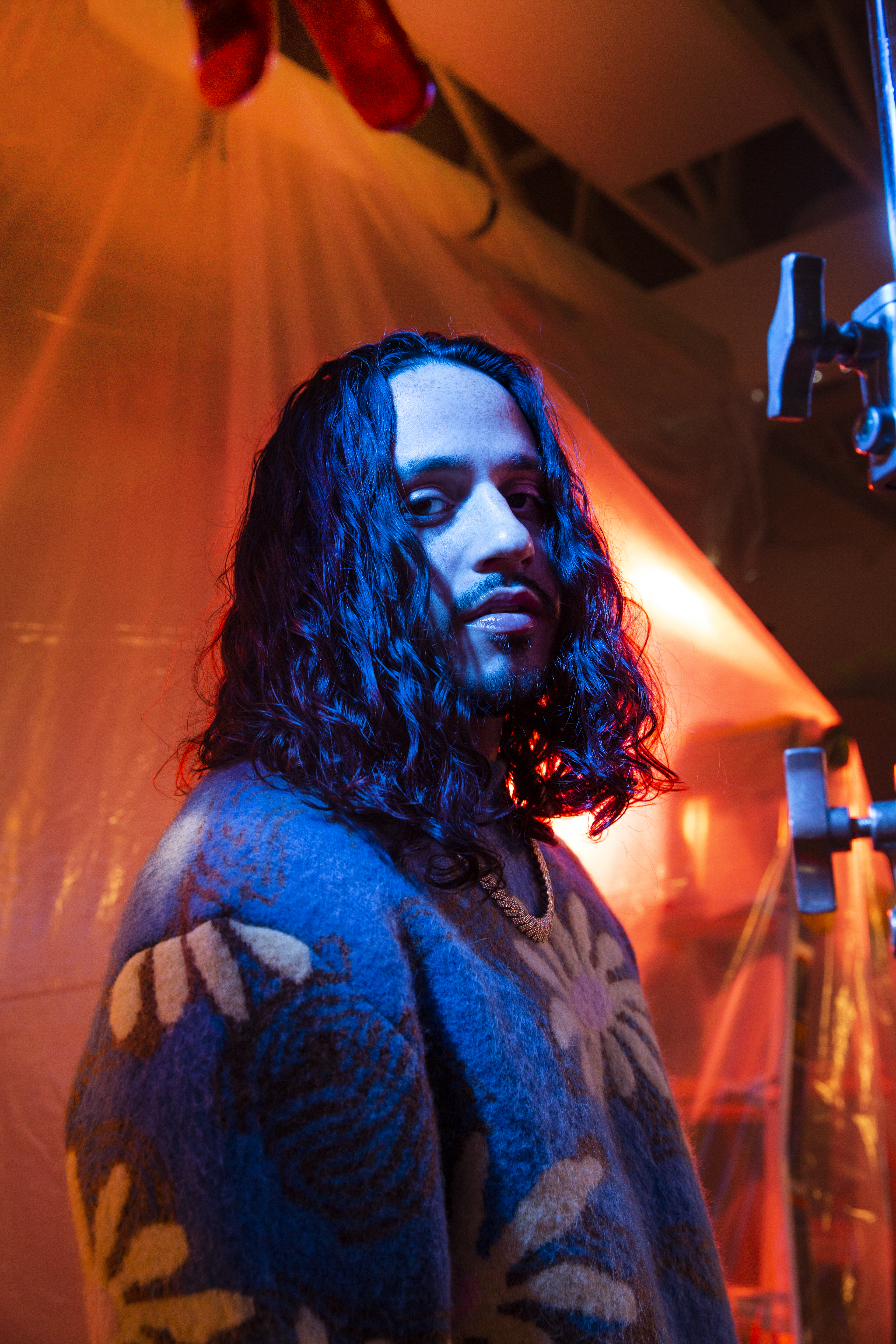
Message received.

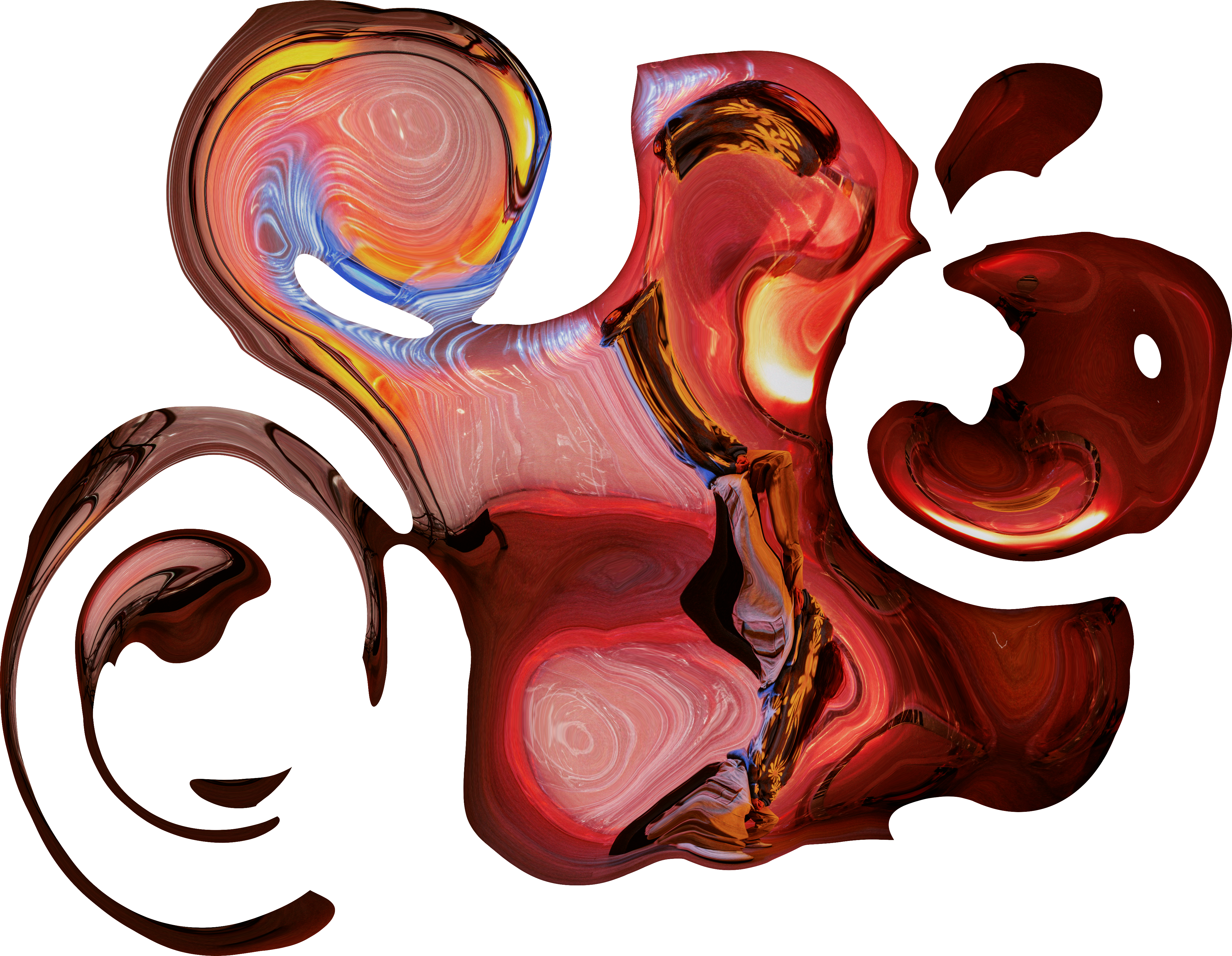
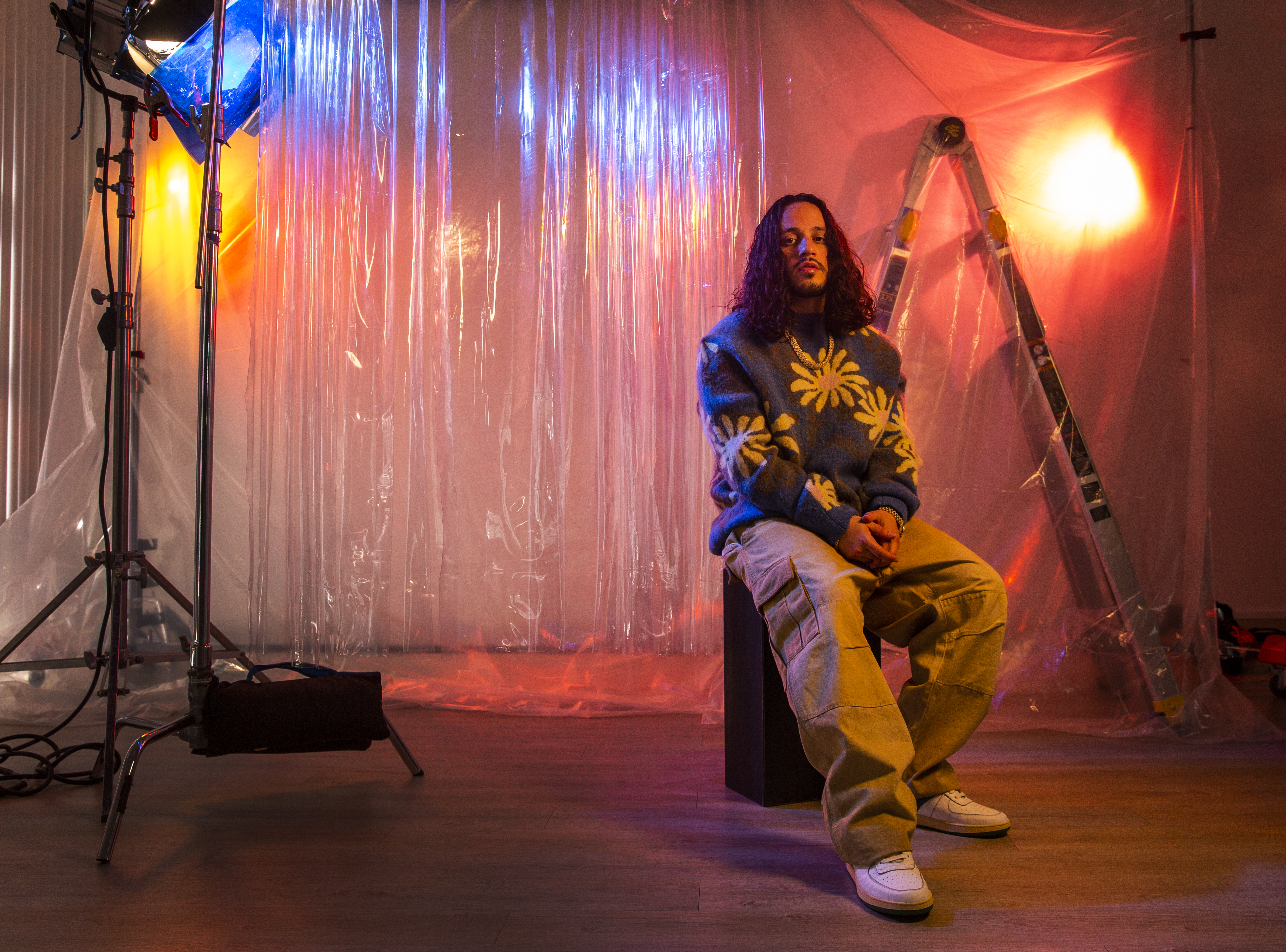
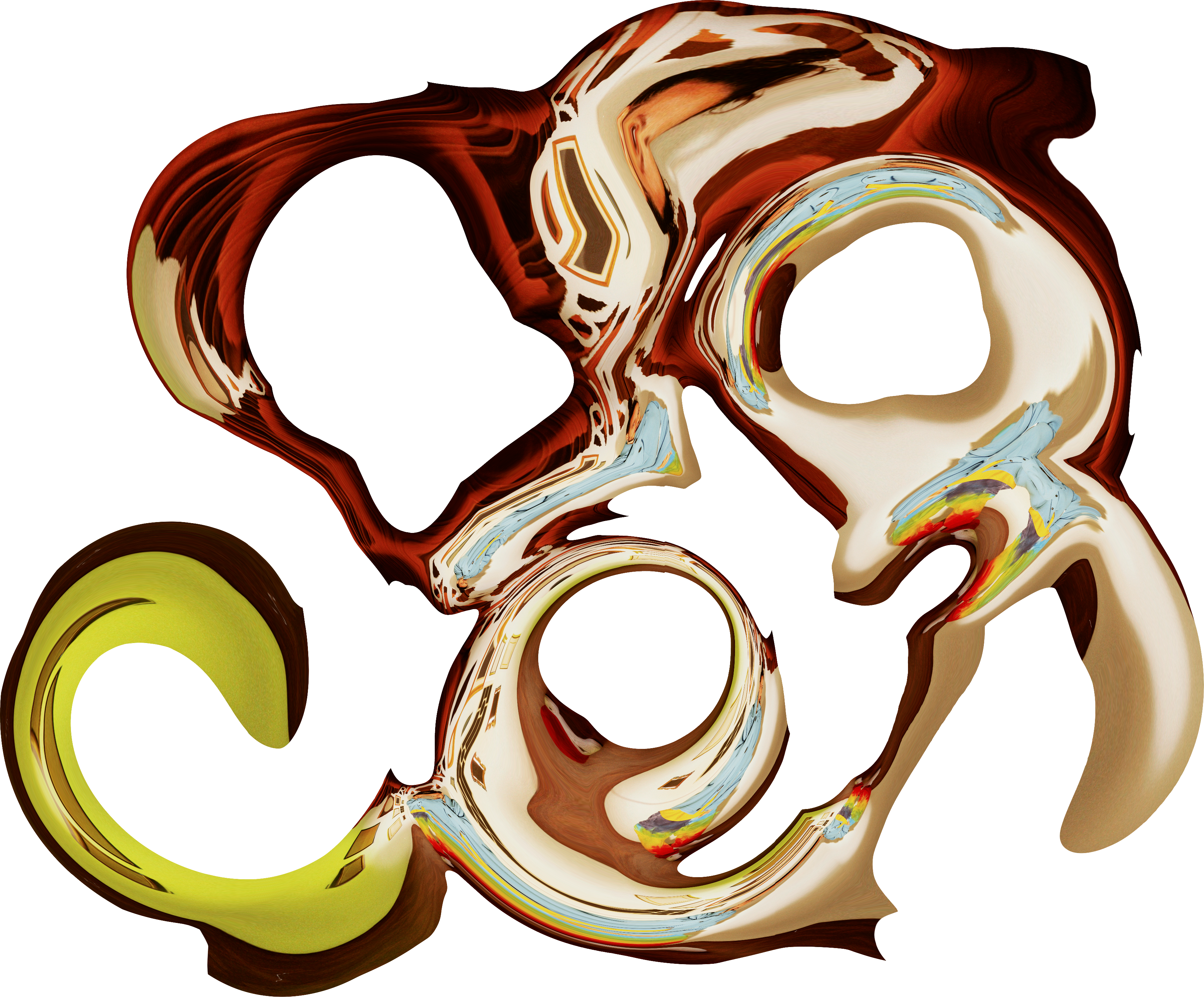

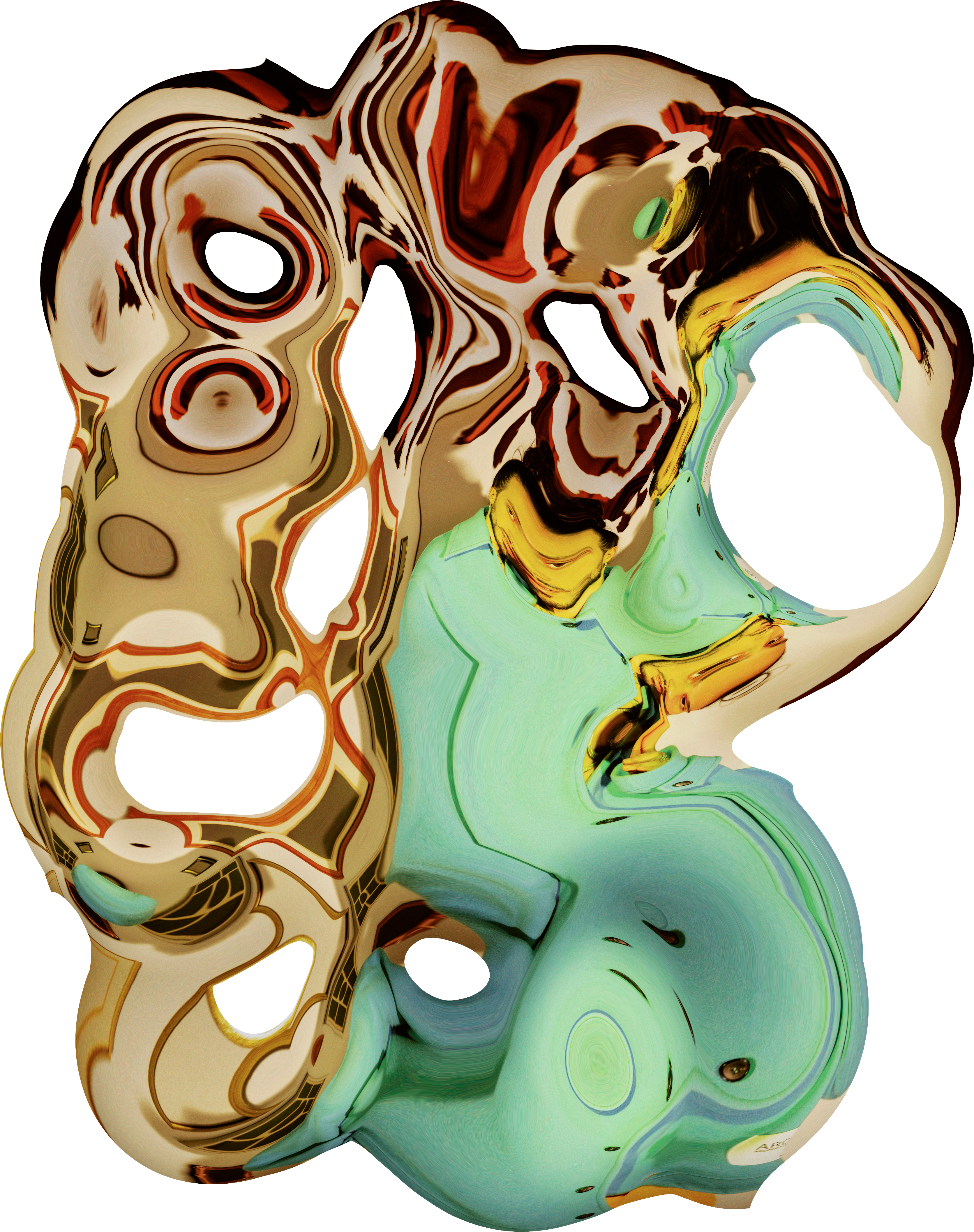
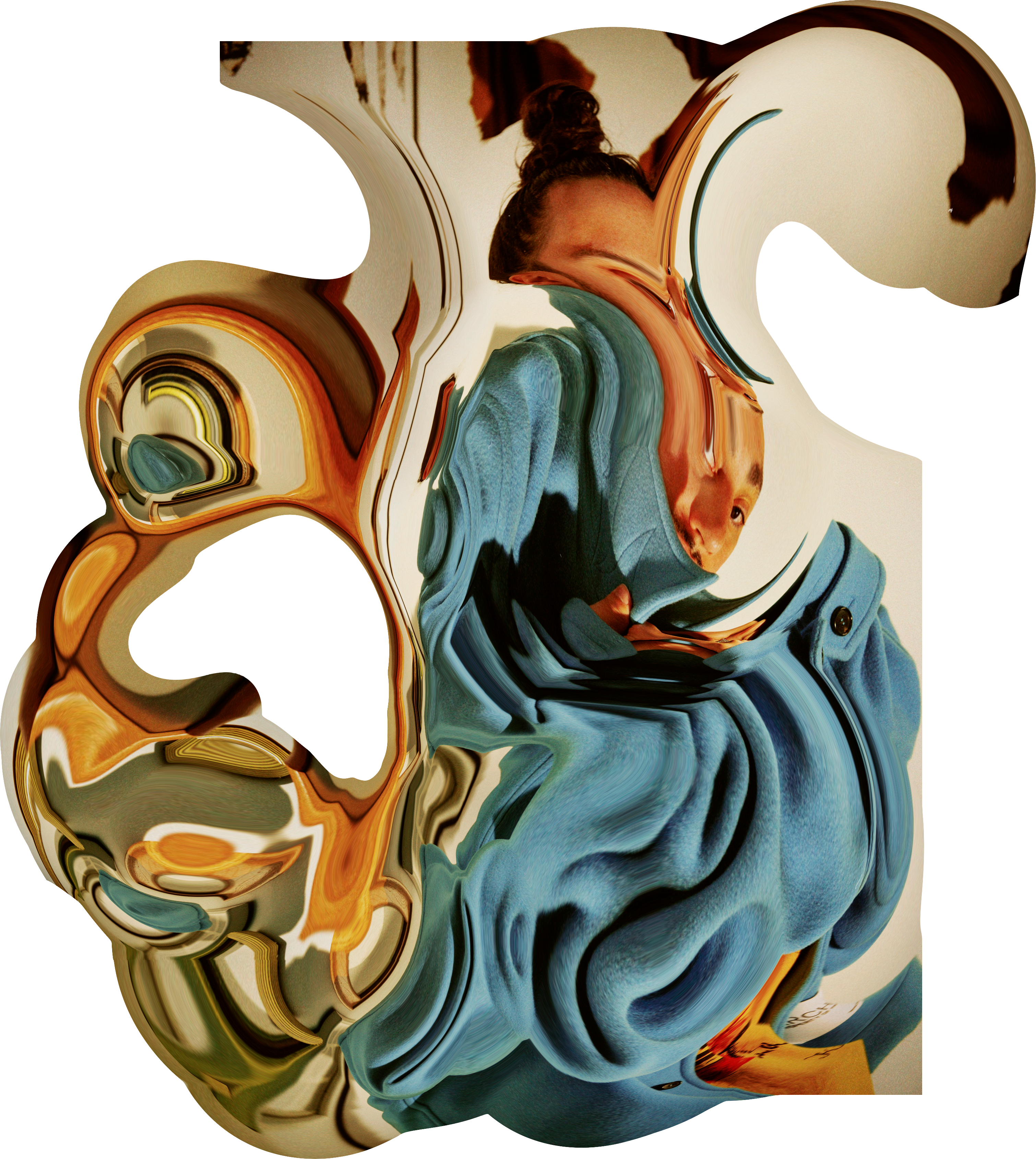

The concept of a supergroup isn’t new, but it’s never without its intrigue. Artists who’ve thrived on their own come together to form
a new project, that when done the right way can grow their success exponentially. More importantly, fans of each artist are over the moon.
Recent unions have included Anderson .Paak and Bruno Mars’ funk-pop Silk Sonic duo, indie stars Phoebe Bridgers, Julien Baker, and Lucy Dacus’ mighty Boygenius trio, the phenomenal rap pairing of El-P and Killer Mike on Run The Jewels, and now on their second trip down the highway, the super-Texan collaboration of Khruangbin and
Leon Bridges.
Unlike the mainstream splash of Silk Sonic, the femme-forward space that Boygenius had to carve out for themselves, or the previous history that Run The Jewels had with each other, Khruangbin and Bridges’ union is more akin to the relative obscurity of 1975’s Gil e Jorge. It’s an album where Gilberto Gil and Jorge Ben Jor, two titans of Brazilian samba and tropicalia, recorded music defined less by its tightly-produced magnifications of each artist’s distinction, and more about a spiritual and improvisational alchemy that developed in the studio devoid of any outside forces. With Gil e Jorge, fans of both went nuts. It was an incredibly unexpected, but wholly welcome joining of forces. And that’s exactly what’s in the air right now with Khruangbin and Leon Bridges as their second EP, Texas Moon — the companion piece to 2020’s wildly popular Texas Sun — comes out on February 18th via Dead Oceans.
PHOTOGRAPHY BY:
Maddie Ivey
EDITION 11
FEBRUARY 2022
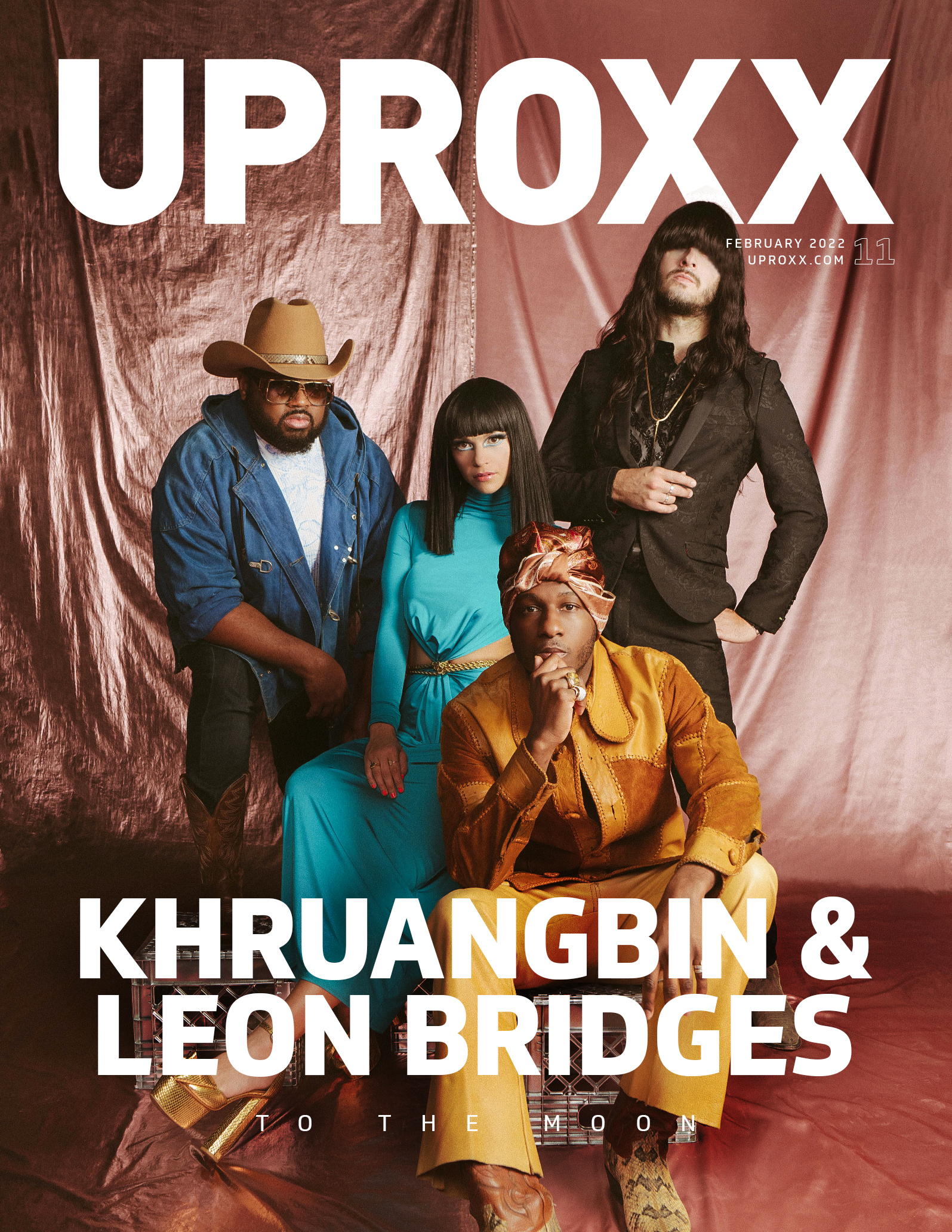
APRIL 5, 2022
BY: Adrian Spinelli
Contrary to popular belief, Russ isn't the antagonist that people think he is.
It's easy to see how this misconception became so widespread, though. Here's a list of euphemisms that I have personally used to describe him in the five years since I first reviewed his major-label debut, There's Really A Wolf: abrasive, brusque, controversial, emphatic, and outspoken.
To his credit, he doesn't deny any of those descriptors. In fact, his reaction is more amused than anything else when he hears this list.
"I take full accountability and responsibility for anything I've said and anything that's come from it," Russ says during a lengthy Zoom interview. "And I stand on everything I've ever said. That's why I haven't apologized for it, because I meant it at the time. Could my approach have been softer and more polished? Yeah. But I don't have media training. I don't have mentors who are industry vets or whatever telling me how to talk. This is just raw and uncut."
Over the course of the past several years, the New Jersey-born, Atlanta-based rapper has drawn the above descriptors from both critics and fans alike. This is mostly thanks to his unfiltered, no-holds-barred attitude toward sharing his opinions during interviews. Russ has proven to have vocal takes on everything from modern rap’s fascination with pill-popping to the virtues of remaining independent in a music industry that has become more artist-friendly than ever.
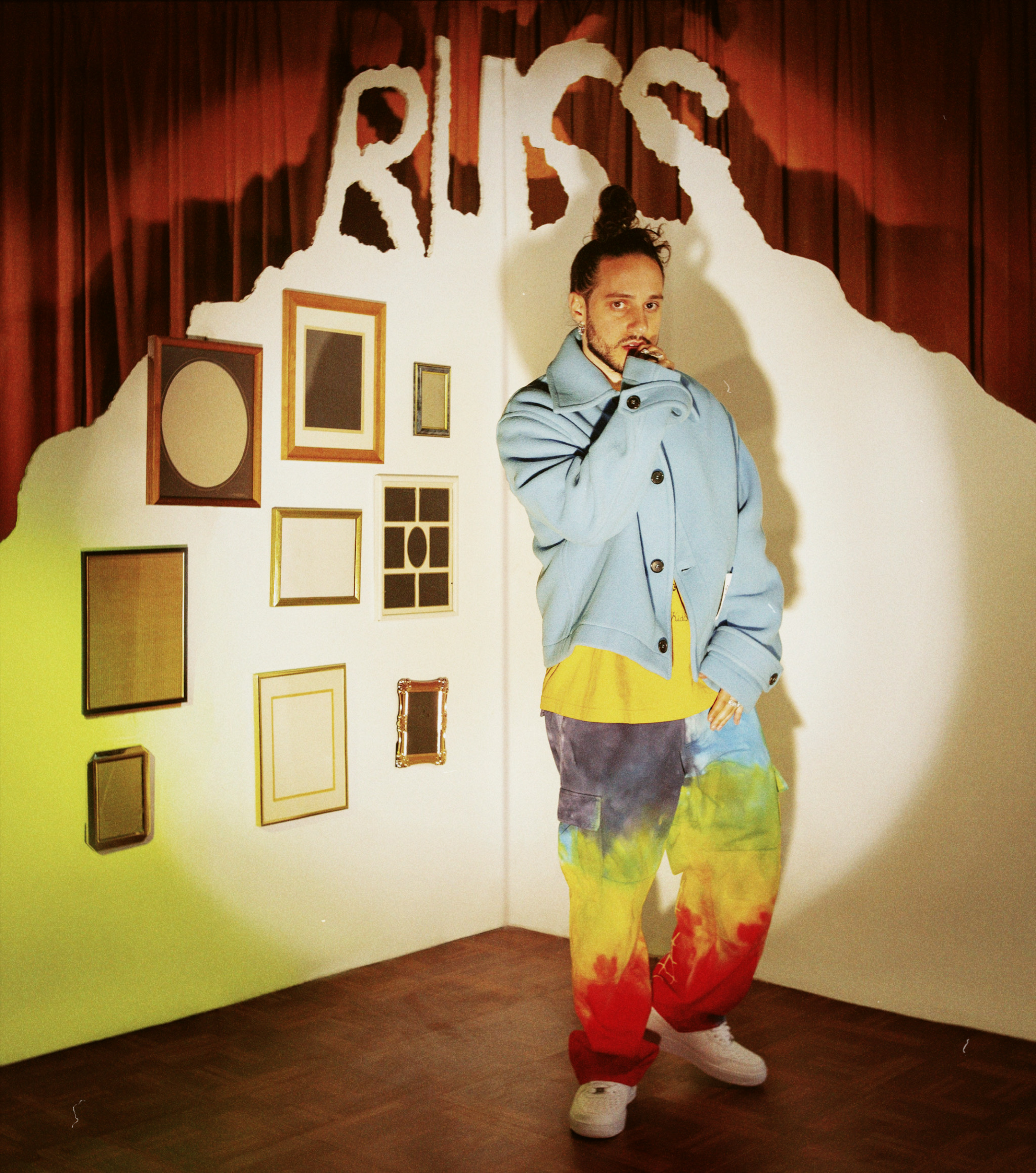
It probably doesn't help that these missives are delivered with the same cavalier dismissiveness as his unapologetic explanation for them. To his credit, they come from a pure place: Russ' unabashed love for the art and culture of hip-hop. And recently, he's begun to mellow out a lot. Narratives take a long time to change in entertainment, something Russ knows very well. He isn't holding his breath for a reevaluation coming any time soon.
Today, though, he's with his family, enjoying the unseasonal sunshine by his pool "eating Chick-fil-A." As he reveals over the course of an hour-long conversation, this is his usual state of being and where he's most comfortable. Even though he's blowing up in the wake of well-received releases like Zoo, Shake The Snow Globe, the Chomp EP, and his recently released full-length follow-up, Chomp 2, he's actually as humble as can be, surrounding himself with family and friends rather than industry hangers-on and sycophants. This is how he stays grounded and staying grounded is the main thing to which he credits his success.
Now, with a decade-long string of independently released projects behind him and a slew of promising future opportunities ahead, Russ is willing to pause for a moment. He’s able to take stock of his career, his popularity, and turning 30, all while reevaluating his own relationship to the success that has come on his own terms.
It probably doesn't help that these missives are delivered with the same cavalier dismissiveness as his unapologetic explanation for them. To his credit, they come from a pure place: Russ' unabashed love for the art and culture of hip-hop. And recently, he's begun to mellow out a lot. Narratives take a long time to change in entertainment, something Russ knows very well. He isn't holding his breath for a reevaluation coming any time soon.
Today, though, he's with his family, enjoying the unseasonal sunshine by his pool "eating Chick-fil-A." As he reveals over the course of an hour-long conversation, this is his usual state of being and where he's most comfortable. Even though he's blowing up in the wake of well-received releases like Zoo, Shake The Snow Globe, the Chomp EP, and his recently released full-length follow-up, Chomp 2, he's actually as humble as can be, surrounding himself with family and friends rather than industry hangers-on and sycophants. This is how he stays grounded and staying grounded is the main thing to which he credits his success.
Now, with a decade-long string of independently released projects behind him and a slew of promising future opportunities ahead, Russ is willing to pause for a moment. He’s able to take stock of his career, his popularity, and turning 30, all while reevaluating his own relationship to the success that has come on his own terms.
Russ – born Russell James Vitale in Secaucus, New Jersey in September 1992 – grew up as an avid fan of hip-hop, inspired by his love of records from Eminem, 50 Cent, and Lloyd Banks. In fact, it was Eminem’s 2000 MTV VMAs performance of “The Real Slim Shady,” which was inspired by the song’s video and saw the rapper surrounded by doppelgangers, that proved the first time Russ recalls having his mind blown by the genre. The impact of Eminem’s complex wordplay still resonates in Russ’ music to this day, as he layers his modern releases with intricate double entendres.
“I wrote the book on independence, I’m on my third presidential,” he barks on his most recent release to date, “What Are Y’all.” It’s not just an excellent example of his gift for lyrical wizardry – the reference to copping Rolexes from the proceeds of his self-funded rap career also slyly name-checks the author of The Declaration Of Independence, Thomas Jefferson. It’s also a concise summation of his philosophy of self-determination even in the face of resistance from fans, labels, and the rap game itself.
Russ started his professional rap career at the age of 19 in 2011, after co-founding the imprint Diemon with his friend Bugus at 17 and releasing a mind-boggling number of mixtapes independently. Three years and eleven tapes later, Russ began gaining traction when he started releasing a single a week on SoundCloud – a practice he’s continued in some fashion to this day. He’s staunchly, stubbornly stuck to his principles ever since, even through a stint on Columbia Records, where he released three albums in four years.
It’s safe to say that this approach – and Russ’ pride in expounding on it nearly every chance he gets – is a large cause of the friction he’s met when it comes to his perception from fans and media personalities. In 2017, shortly after the release of his major debut album, There’s Really A Wolf, Russ caused a stir online when posted a photo of himself wearing a T-shirt reading “How much Xans and lean do you have to do before you realize you’re a fucking loser?”
It felt like a call out to the then-prominent wave of SoundCloud rappers such as Lil Peep, Lil Pump, and Fredo Santana, as well as their influential predecessors such as Future, Gucci Mane, and Lil Wayne. As warranted as his push-back against the prevalence of seemingly pro-drug messaging in hip-hop may have been – consider that since then, the culture has lost several outstanding artists due to drug overdoses, including Peep, Mac Miller, and Juice WRLD – Russ was criticized for the harsh tone of the counter-messaging and for lacking nuance in how he addressed the root causes of drug addiction.
Russ – born Russell James Vitale in Secaucus, New Jersey in September 1992 – grew up as an avid fan of hip-hop, inspired by his love of records from Eminem, 50 Cent, and Lloyd Banks. In fact, it was Eminem’s 2000 MTV VMAs performance of “The Real Slim Shady,” which was inspired by the song’s video and saw the rapper surrounded by doppelgangers, that proved the first time Russ recalls having his mind blown by the genre. The impact of Eminem’s complex wordplay still resonates in Russ’ music to this day, as he layers his modern releases with intricate double entendres.
“I wrote the book on independence, I’m on my third presidential,” he barks on his most recent release to date, “What Are Y’all.” It’s not just an excellent example of his gift for lyrical wizardry – the reference to copping Rolexes from the proceeds of his self-funded rap career also slyly name-checks the author of The Declaration Of Independence, Thomas Jefferson. It’s also a concise summation of his philosophy of self-determination even in the face of resistance from fans, labels, and the rap game itself.
Russ started his professional rap career at the age of 19 in 2011, after co-founding the imprint Diemon with his friend Bugus at 17 and releasing a mind-boggling number of mixtapes independently. Three years and eleven tapes later, Russ began gaining traction when he started releasing a single a week on SoundCloud – a practice he’s continued in some fashion to this day. He’s staunchly, stubbornly stuck to his principles ever since, even through a stint on Columbia Records, where he released three albums in four years.
It’s safe to say that this approach – and Russ’ pride in expounding on it nearly every chance he gets – is a large cause of the friction he’s met when it comes to his perception from fans and media personalities. In 2017, shortly after the release of his major debut album, There’s Really A Wolf, Russ caused a stir online when posted a photo of himself wearing a T-shirt reading “How much Xans and lean do you have to do before you realize you’re a fucking loser?”
It felt like a call out to the then-prominent wave of SoundCloud rappers such as Lil Peep, Lil Pump, and Fredo Santana, as well as their influential predecessors such as Future, Gucci Mane, and Lil Wayne. As warranted as his push-back against the prevalence of seemingly pro-drug messaging in hip-hop may have been – consider that since then, the culture has lost several outstanding artists due to drug overdoses, including Peep, Mac Miller, and Juice WRLD – Russ was criticized for the harsh tone of the counter-messaging and for lacking nuance in how he addressed the root causes of drug addiction.
“On Zoo, I was like, let me make this more cohesive,” he says. “That's why it was a shorter album because I really wanted to craft an accurate sound and an accurate mood for how I was feeling at the time. When I go back and listen to Zoo, it's really well done as far as what I was trying to get across. It captures the chaos that was my life in 2018, with all the hate and all the incredible blessings at the same time. Selling out Staples Center, making the Forbes list. It's like you have this crazy juxtaposition of a lot of widespread negativity while also achieving a lot of incredible accomplishments. So, it was chaotic and there were dark moments and ‘fuck you’ moments. When you go back and listen to Zoo, it does a really good job at painting that picture.”
With 2020’s Shake The Snow Globe, Russ finally entered the coveted stratus of mainstream acceptance when Rihanna posted a video of herself dancing to his song, “Best On Earth,” to Instagram. Suddenly, it wasn’t just Russ’ hardcore fans and day-ones championing his cause. This is what so many artists work toward their entire careers and, in most cases, certain compromises must be made. Publishing must be signed away, radio singles must be written, and institutions like music publications and playlist programmers must be courted. Russ didn’t exactly flout those conventions, but he did show that they could be circumvented. Success doesn’t have to mean selling out.
“I love Shake The Snow Globe,” he says. “That was my most collaborative album yet, from the production to the features. It was the most critically acclaimed, but I feel like that's just because that was the most attention I had. I don't know how many critics were really checking for Zoo and There's Really A Wolf. I just feel like Shake The Snow Globe just had more people tuned in. So, therefore, more people gave a fuck about it. It's hard to get people to come around to a brand-new sound when it's just me doing all this shit. It's easier to be, like, ‘this is a critically acclaimed album’ when you get the outside production and stuff on it. But at the end of the day, I do think Shake The Snow Globe is the most mature album I have made. It's a very self-aware album.”
"It's always when you look back, you notice that the timing of everything was actually perfect."
Russ isn’t blind to the criticisms, nor does he discount the circumstances of his success. He straight up volunteers his thoughts on being a white man in hip-hop, taking care to point out his advice and observations come from a place of love for the art and its originators.
“I do understand, though, that when you come into the game, especially when you come into the Black space as a white person with opinions that no one asks for, it's not going to be met very well,” he admits. “At the end of the day, I never said anything that was destructive towards the culture. Everything I said was an attempt to move it forward on a positive level. If I'm talking about ownership or if I'm talking about touring or... It's like everything I would say was always like, ‘oh, this would actually help everyone.’ It's not like I was pushing something negative. I wasn't moving around out here with a negative agenda. My agenda was positive. It was just that my approach was very like, ‘y'all got to fucking listen to what I'm saying, what the fuck is wrong with y'all.’ Obviously, that's not going to come across great, but I don't regret any of that at all, because I was 23, 24. If I didn't do that, I wouldn't be the person who I am now.”
If he attributes this newfound awareness to anything, it’s that he’s on the cusp of turning 30 and has been going to therapy. He says that, given the opportunity, he would tell 2017 Russ to “breathe and take a step back every once in a while.” But he makes it clear that he doesn’t regret anything he’s said over the past five years because of that earlier stated awareness.
"I never said anything that was destructive towards the culture. Everything I said was an attempt to move it forward on a positive level.
"when you have a major change in your life, especially a positive one, there's an adjustment shock."
Writer: Aaron Williams
@aaronsmarter
Designer: DAISY JAMES
@DJAMESDESIGN
Photographer, Set Design: Maddie Ivey
@maddie_ivey
Stylist: Jyotisha Bridges
@Jyotisha_
1st Photo Assistant: Colette Minter
@coletteiscute
2nd Photo Assistant: Hails Joseph
@hailsjsph
Gaffer: Jon Heus
@j.w.heus
Set Build: Miles Freed
@miyuuls
SET BUILD: Josh Dickson
@_1987__
CKAY is a Warner Music artist. Uproxx is an independent subsidiary of Warner Music Group.


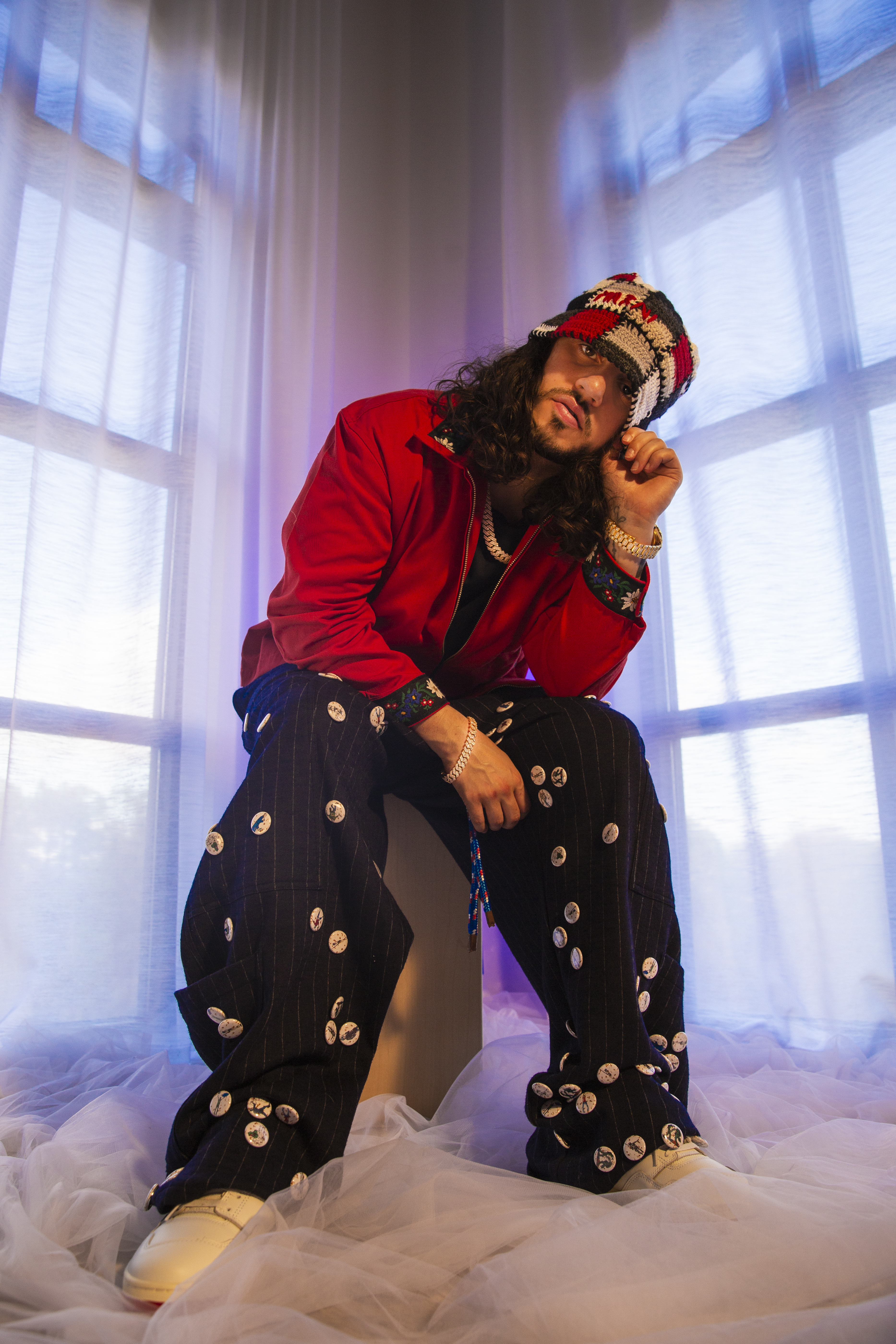
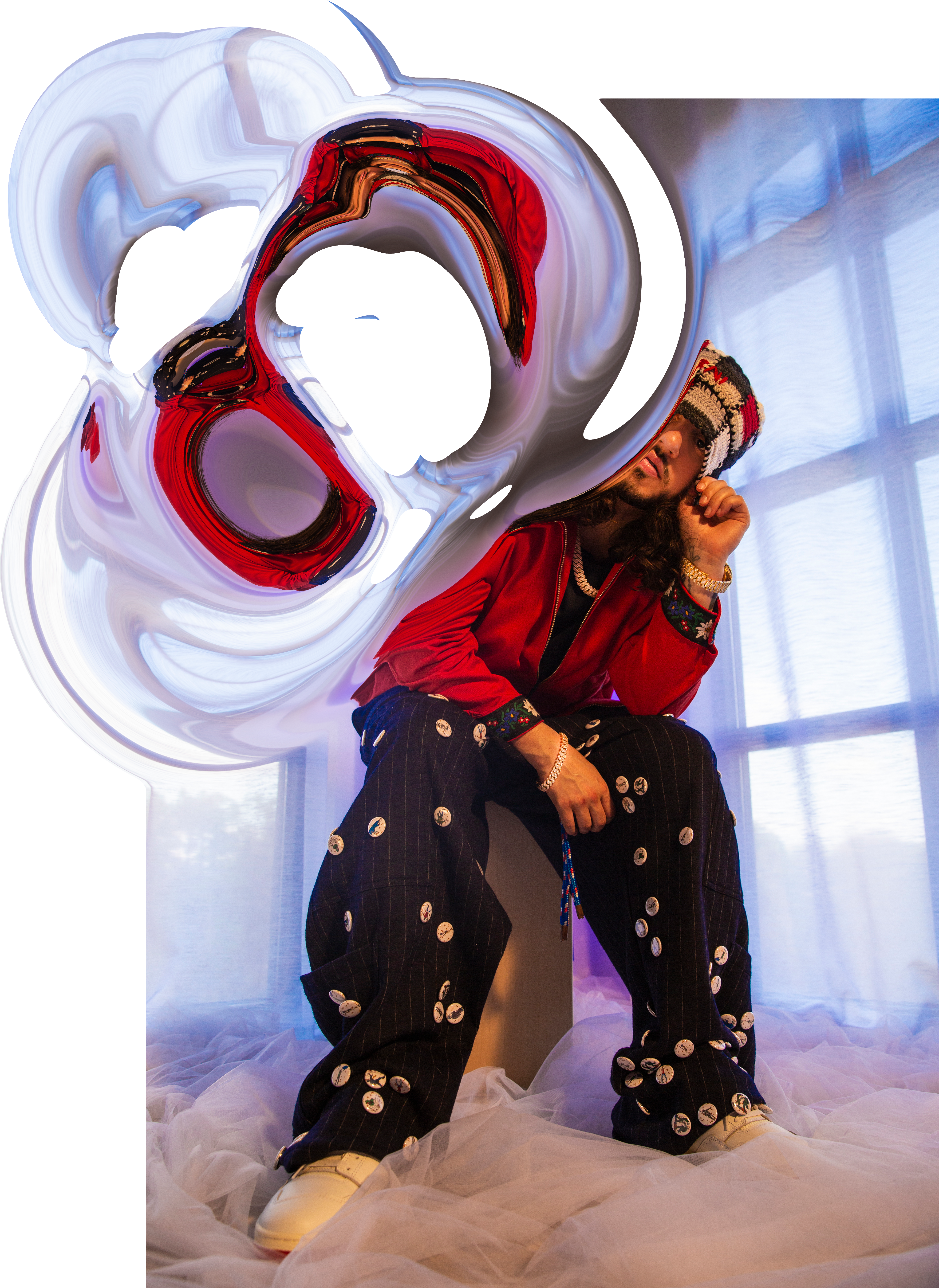


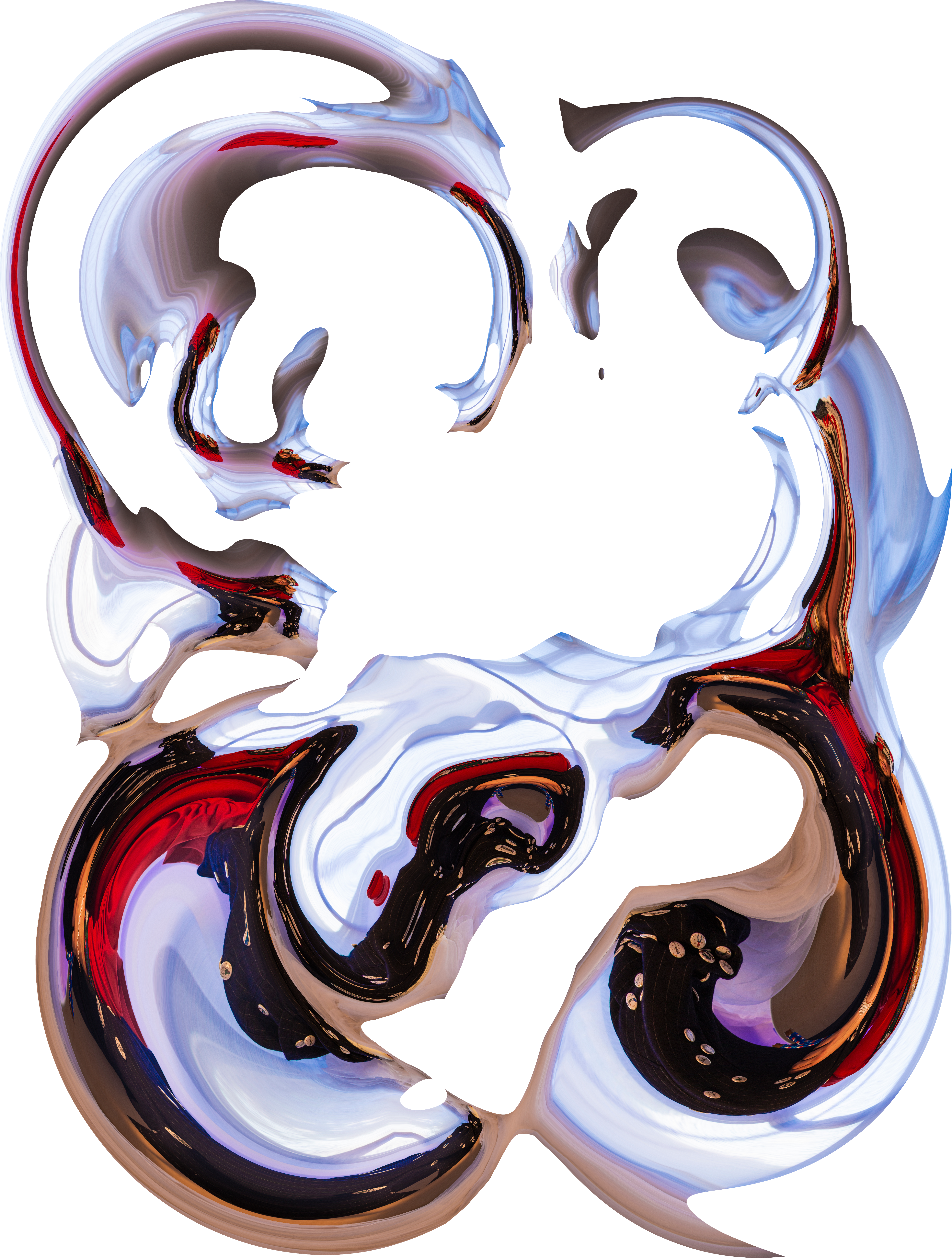


Russ isn’t blind to the criticisms, nor does he discount the circumstances of his success. He straight up volunteers his thoughts on being a white man in hip-hop, taking care to point out his advice and observations come from a place of love for the art and its originators.
“I do understand, though, that when you come into the game, especially when you come into the Black space as a white person with opinions that no one asks for, it's not going to be met very well,” he admits. “At the end of the day, I never said anything that was destructive towards the culture. Everything I said was an attempt to move it forward on a positive level. If I'm talking about ownership or if I'm talking about touring or... It's like everything I would say was always like, ‘oh, this would actually help everyone.’ It's not like I was pushing something negative. I wasn't moving around out here with a negative agenda. My agenda was positive. It was just that my approach was very like, ‘y'all got to fucking listen to what I'm saying, what the fuck is wrong with y'all.’ Obviously, that's not going to come across great, but I don't regret any of that at all, because I was 23, 24. If I didn't do that, I wouldn't be the person who I am now.”
If he attributes this newfound awareness to anything, it’s that he’s on the cusp of turning 30 and has been going to therapy. He says that, given the opportunity, he would tell 2017 Russ to “breathe and take a step back every once in a while.” But he makes it clear that he doesn’t regret anything he’s said over the past five years because of that earlier stated awareness.

Look 1 - Jacket: Palm Angels, Shirt: Kidsuper Studios, Pants: Kidsuper Studios, Shoes: Airfores 1's
Look 2 - Sweater: Nanushka, Pants: Supervsn, Shoes: Rhude
Look 3 - Jacket: Bode, Hat: Marni, Shirt: Rh45, Pants: Death To Tennis

RUSS